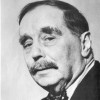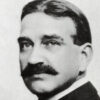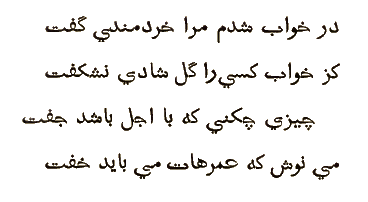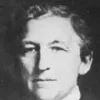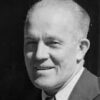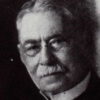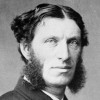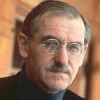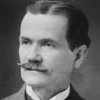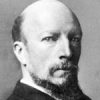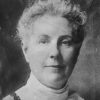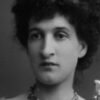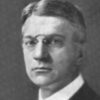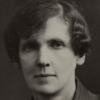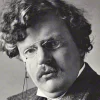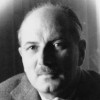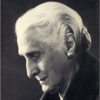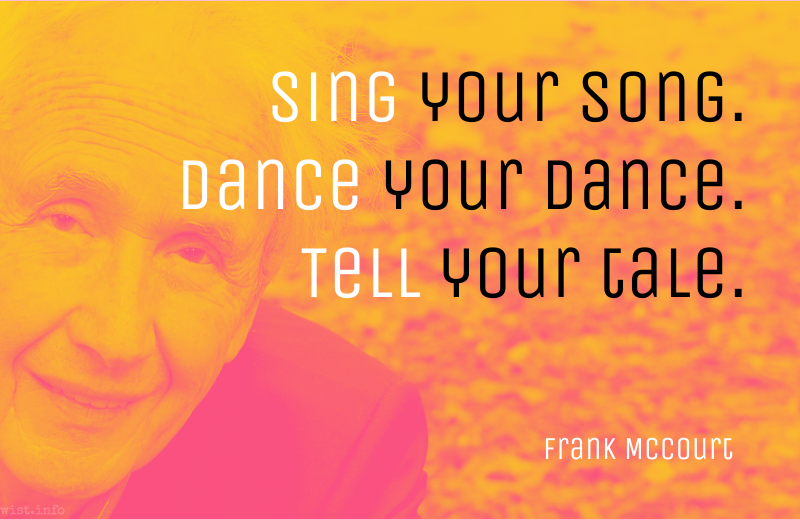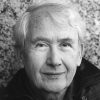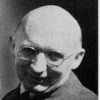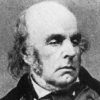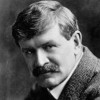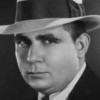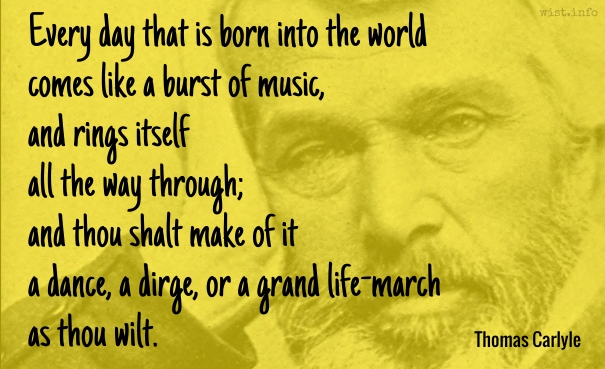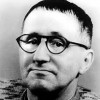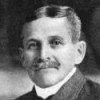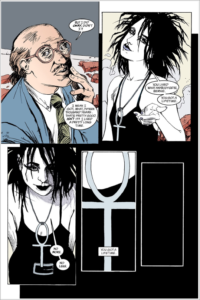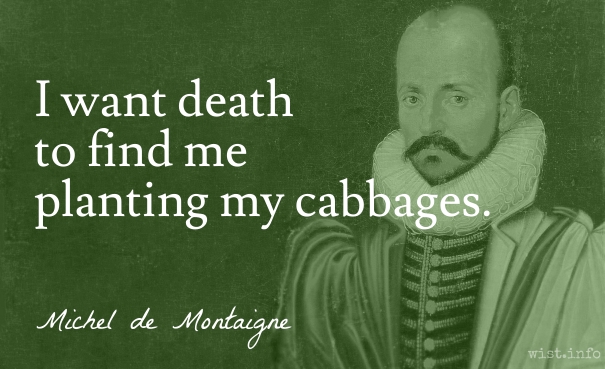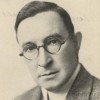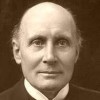Rats and roaches live by competition under the laws of supply and demand; it is the privilege of human beings to live under the laws of justice and mercy.
Wendell Berry (b. 1934) American farmer, educator, poet, conservationist
Essay (1988), “Economy and Pleasure,” What Are People For? (1990)
(Source)
Quotations about:
living
Note not all quotations have been tagged, so Search may find additional quotes on this topic.
To ignore our opportunities for knowledge, imperfect as they are, is like going to the theatre and not listening to the play. The world is full of things that are tragic or comic, heroic or bizarre or surprising, and those who fail to be interested in the spectacle that it offers are forgoing one of the privileges that life has to offer.
Bertrand Russell (1872-1970) English mathematician and philosopher
Conquest of Happiness, Part 2, ch. 15 “Impersonal Interests” (1930)
(Source)
There’s no such thing as a humdrum life; to the person living it, it’s all peaks and abysses.
Mignon McLaughlin (1913-1983) American journalist and author
The Second Neurotic’s Notebook, ch. 4 (1966)
(Source)
The life of the dead resides in the memory of the living
[Vita enim mortuorum in memoria est posita vivorum.]
Marcus Tullius Cicero (106-43 BC) Roman orator, statesman, philosopher
Philippics [Philippicae; Antonian Orations], No. 9, ch. 5 / sec. 10 (9.5/9.10) (43-02-04 BC) [tr. Zetzel (2009)]
(Source)
Calling on the Senate to memorialize Servius Sulpicius Rufus, who died during the Senate-sponsored embassy to Mark Antony in Mutina.
(Source (Latin)). Other translations:The life of the dead is placed in the memory of the living.
[ed. Hoyt (1896)]For the life of the dead consists in the recollection cherished of them by the living.
[tr. Yonge (1903)]The dead live in the memory of the living.
[ed. Harbottle (1906)]For the life of the dead is set in the memory of the living.
[tr. Ker (Loeb) (1926)]For the life of the dead lies in the memory of the living.
[tr. Manuwald (2007)]
My business, my art, is to live my life. If anyone forbids me to talk about it according to my own sense, experience and practice, let him also command an architect to talk about buildings not according to his own standard but his next-door neighbour’s, according to somebody else’s knowledge not his own.
[Mon mestier & mon art, c’est vivre. Qui me defend d’en parler selon mon sens, experience & usage : qu’il ordonne à l’architecte de parler des bastimens non selon soy, mais selon son voisin, selon la science d’un autre, non selon la sienne.]
Michel de Montaigne (1533-1592) French essayist
Essays, Book 2, ch. 6 (2.6), “Of Practice [De l’exercitation]” (1574?) [tr. Screech (1987)]
(Source)
(Source (French)). Alternate translations:My arte and profession, is to live. Who forbids mee to speake of it, according to my sense, experience, and custome? Let him appoint the Architect to speake of buildings, not according to himselfe, but his neighbours, according to anothers skill, and not his owne.
[tr. Florio (1603)]My art and business is to live. He that forbids me to speak according to my own sense, experience, and practice, may as well enjoin an architect to speak of buildings not in his own style, but in his neighbour's; not according to his own science, but according to another man's.
[tr. Cotton (1686)]My trade and art is to live; he that forbids me to speak according to my own sense, experience, and practice, may as well enjoin an architect not to speak of building according to his own knowledge, but according to that of his neighbor; according to the knowledge of another, and not according to his own.
[tr. Cotton/Hazlitt (1877)]My profession and my art is living. Whoever forbids me to speak of this according to my perceptions, experience, and habit, let him bid the architect talk about buildings, not according to his own ideas, but according to those of his neighbour; according to another's knowledge, not according to his own.
[tr. Ives (1925)]My trade and my art is to live. He that forbids me to speak of it according to my own sense, experience, and practice, let him command an architect to speak of buildings not in his own style but his neighbour's, according to another man's knowledge, not according to his own.
[tr. Zeitlin (1934)]My trade and my art is living. He who forbids me to speak about it according to my sense, experience, and practice, let him order the architect to speak of buildings not according to himself but according to his neighbor; according to another man’s knowledge, not according to his own.
[tr. Frame (1943)]Living is my job and my art.
[ed. Rat (1958)]Living is my work, and my art. Let anyone who forbids me to speak of it according to my understanding, experience, and practice order an architect to speak of his buildings according, not to himself, but to his neighbor; according to his knowledge, not his own.
[tr. Atkinson/Sices (2012)]
Few of us write great novels; all of us live them.
Mignon McLaughlin (1913-1983) American journalist and author
The Neurotic’s Notebook, ch. 7 (1963)
(Source)
Life isn’t all beer and skittles.
Thomas Hughes (1822-1896) English lawyer, judge, politician, author
Tom Brown’s School Days, Part 1, ch. 2 “The Veast” (1857)
(Source)
Life’s usefulness is not in its length, but in its use: some who have lived a long time have lived but little — take heed of it while you are still in it. For you to have lived enough lies in your will, not in the number of your years.
[L’utilité du vivre n’est pas en l’espace: elle est en l’usage. Tel a vescu long temps, qui a peu vescu. Attendez vous y pendant que vous y estes. Il gist en vostre volonté, non au nombre des ans, que vous ayez assez vescu.]
Michel de Montaigne (1533-1592) French essayist
Essays, Book 1, ch. 19 (1.19), “That to Philosophize Is to Learn to Die [Que Philosopher, c’est apprendre à mourir]” (1572-03) [tr. Atkinson/Sices (2012)]
(Source)
This essay was present in the 1st (1580) edition, but this passage dates from the final (1595) collection.
Some translators use the older 1588 chapter sequence, and identify this as ch. 20.
(Source (French)). Alternate translations:The profit of life consistes not in the space, but rather in the use. Some man hath lived long, that hath had a short life. Follow it whilst you have time. It consists not in number of yeares, but in your will, that you have lived long enough.
[tr. Florio (1603)]Neither does the Utility of living consist in the length of days, but in the well husbanding and improving of Time, and such an one may have been who has longer continued in the World than the ordinary Age of Man; that has yet liv’d but a little while. Make use of Time while it is present with you. It depends upon your Will, and not upon the number of Days, to have a sufficient length of Life.
[tr. Cotton (1686)]The benefit of life consists not in the space, but in the use of it. Such a one may have lived a long time who yet may be said to have enjoyed but a short life. Give attention to time while it is present with you. It depends upon your will and not upon the nujmber of years that you have lived long enough.
[tr. Friswell (1868)]The utility of living consists not in the length of days, but in the use of time; a man may have lived long, and yet lived but a little. Make use of time while it is present with you. It depends upon your will, and not upon the number of days, to have a sufficient length of life.
[tr. Cotton/Hazlitt (1877)]The usefulness of living is not in length of time, but in its use. A man may have lived long who has lived little. Look well to life whilst you are in life. It depends on your will, not on the number of your years, whether you ahve loved long enough.
[tr. Ives (1925)]Wherever your life ends, it is all there. “The advantage of living is not measured by length, but by use; some men have lived long, and lived little; attend to it while you are in it. It lies in your will, not in the number of years, for you to have lived enough.
[tr. Frame (1943)]The value of life lies not in the length of days but in the use you make of them; he has lived for a long time who has little lived. Whether you have lived enough depends not on the number of your years but on your will.
[tr. Rat (1958), 1.20]The usefulness of living lies not in duration but in what you make of it. Some have lived long and lived little. See to it while you are still here. Whether you have lived enough depends not on a count of years but on your will.
[tr. Screech (1987)]Life is worth not its extent but its use. Some lived little who lived a long while. Pay attention to life while you live yours. Whether you have lived enough depends on your will, not on a number of years.
[tr. HyperEssays (2025)]
Life is a great big canvas, and you should throw all the paint on it you can.
Since we have explored the maze so long without result, it follows, for poor human reason, that we cannot have to explore much longer; close by must be the centre, with a champagne luncheon and a piece of ornamental water. How if there were no centre at all, but just one alley after another, and the whole world a labyrinth without end or issue?
But a normal human being does not want the Kingdom of Heaven: he wants life on earth to continue. This is not solely because he is “weak”, “sinful” and anxious for a “good time”. Most people get a fair amount of fun out of their lives, but on balance life is suffering, and only the very young or the very foolish imagine otherwise. Ultimately it is the Christian attitude which is self-interested and hedonistic, since the aim is always to get away from the painful struggle of earthly life and find eternal peace in some kind of Heaven or Nirvana. The humanist attitude is that the struggle must continue and that death is the price of life.
Remember, all
Who live on earth are mortal, great and small:
Then take, good sir, your pleasure while you may;
With life so short ’twere wrong to lose a day.[Carpe viam, mihi crede, comes, terrestria quando
mortalis animas vivunt sortita neque ulla est
aut magno aut parvo leti fuga: quo, bone, circa,
dum licet, in rebus jucundis vive beatus;
vive memor quam sis aevi brevis.]Horace (65–8 BC) Roman poet, satirist, soldier, politician [Quintus Horatius Flaccus]
Satires [Saturae, Sermones], Book 2, # 6, “Hoc erat in votis,” l. 93ff (2.6.93-97) (30 BC) [tr. Conington (1874)]
(Source)
The (Epicurean) town mouse encouraging the country mouse to come visit the city.
(Source (Latin)). Alternate translations:Our earthelie soule is ruinouse, not possible to flye
From dinte of death, by any meanes, the longeste livde muste dye.
Wherfore good sister, whilste thou maiste, do bayth they selfe in blisse,
Remember aye, how shadowye, and shorte this lyfe time is.
[tr. Drant (1567)]Since all shall die, and when
We go, our Mortal souls resolve to dust,
Live happy whil'st thou may'st, as one that must
Be nothing a while hence.
[tr. R. Fanshawe; ed. Brome (1666)]Since all must dye, and must resign their Breath,
Nor great, nor little is secure from Death;
Then spend thy days in Pleasure, Mirth and Sport.
And live like One, that Minds his Life is short.
[tr. Creech (1684)]Since animals but draw their breath,
And have no being after death;
Since nor the little, nor the great,
Can shun the rigour of their fate;
At least be merry while you may,
The life of mice is but a day:
Come then, my friend, to pleasure give
The little life you have to live.
[tr. Francis (1747)]And, since in every creature upon earth
Lurk seeds of dissolution from its birth, --
Since soon or late, however great or small,
Inexorable Death awaits us all, --
Be wise, be happy; revel while you may,
And lengthen by enjoyment life's short day.
[tr. Howes (1845)]Since mortal lives are allotted to all terrestrial animals, nor is there any escape from death, either for the great or the small. Wherefore, my good friend, while it is in your power, live happy in joyous circumstances: live mindful of how brief an existence you are.
[tr. Smart/Buckley (1853)]Since creatures earthly all possess by lot but transitory lives, and since and following few lines, there's no escape from death for great or small: -- because of this, I say, dear friend, while you've the chance, live happy in a pleasant state, and well remember how short-lived you are.
[tr. Millington (1870)]Since all that is on earth is mortal, and there is no escape from death for great or small, draw the true conclusion, my dear sir, and live whilst you may in the enjoyment of what is pleasant; live, and remember how short the time is!
[tr. Wickham (1903)]Inasmuch as all creatures that live on earth have mortal souls, and for neither great nor small is there escape from death, therefore, good sir, while you may, live happy amid joys; live mindful ever of how brief your time is!
[tr. Fairclough (Loeb) (1926)]All earthly creatures, after all, have drawn as their lot
A mortal life: there is no escape from death
For large or small. Therefore, while you still can,
Enjoy a happy career, my good man, live well;
Live mindful of how short life really is.
[tr. Palmer Bovie (1959)]For nature gives
us earthly creatures mortal souls, and there's no escaping death
for anyone, large or small. That's why I say, old buddy,
live happily while you can with things that you enjoy;
live mindful of the shortness of your time.
[tr. Fuchs (1977)]For no one
Lives forever, not on this earth, and everyone
Dies, rich and poor alike. So
Be happy, live well, while you can.
Remember, it’s not for long!
[tr. Raffel (1983)]All earth's creatures
have mortal souls. And there is no way
to flee this destiny, neither for the great
nor for the humble; all the more reason,
my dear fellow, to live happily
so long as you can amidst pleasures,
keeping ever in mind how brief
are your days.
[tr. Alexander (1999)]We're all slated for death,
whether we be grand or ordinary;
thus we should avidly pursue life's joys
the whole of our short course on earth.
[tr. Matthews (2002)]All earthly creatures have been given mortal souls;
large or small they have no means of escaping death.
So my dear chap, while there's still time, enjoy the good things
of life, and never forget your days are numbered.
[tr. Rudd (2005 ed.)]Since all terrestrial creatures
Are mortal, and there’s no escape from death for great
Or small, then live happily, good friend, while you may
Surrounded by joyful things: mindful while you live
How brief existence is.
[tr. Kline (2015)]
It is nothing to die; it is horrible not to live.
[Ce n’est rien de mourir; c’est affreux de ne pas vivre.]
Victor Hugo (1802-1885) French writer
Les Misérables, Part 5 “Jean Valjean,” Book 9 “Supreme Shadow, Supreme Dawn,” ch. 5 (5.9.5) [Jean Valjean] (1862) [tr. Wilbour/Fahnestock/MacAfee (1987)]
(Source)
Spoken to Cosette and Marius (and his doctor) as he is dying.
(Source (French)). Alternate translations:It is nothing to die; it is frightful not to live.
[tr. Wilbour (1862)]It is nothing to die, but it is frightful not to live.
[tr. Wraxall (1862)]It is nothing to die; it is dreadful not to live.
[tr. Hapgood (1887)]To die is nothing; but it is terrible not to live.
[tr. Denny (1976)]It’s nothing to die. It’s dreadful not to live.
[tr. Donougher (2013)]
They say you only live once, but come to think of it — you only die once as well.
Eyran Katsenelenbogen (b. 1965) Israeli-American jazz pianist [אירן קאצנלנבוגן]
One Time (book) (2021)
(Source)
What people mean, therefore, by the struggle for life is really the struggle for success. What people fear when they engage in the struggle is not that they will fail to get their breakfast next morning, but that they will fail to outshine their neighbours.
Bertrand Russell (1872-1970) English mathematician and philosopher
Conquest of Happiness, Part 1, ch. 3 “Competition” (1930)
(Source)
Since Life is so very short, live as much as thou canst in so short a Time.
Thomas Fuller (1654-1734) English physician, preacher, aphorist, writer
Introductio ad Prudentiam, Vol. 2, # 1757 (1727)
(Source)
You are a little soul carrying around a corpse, as Epictetus used to say.
[Ψυχάριον εἶ βαστάζον νεκρόν, ὡς Ἐπίκτητος ἔλεγεν.]
Epictetus (c. 55-c. 135 AD) Greek (Phrygian) Stoic philosopher [Ἐπίκτητος, Epíktētos]
Discourses, Fragment 26 (Schenkl) (AD 108) [tr. Gill (2013)]
(Source)
The sole source for this fragment is Marcus Aurelius, Meditations [To Himself; Τὰ εἰς ἑαυτόν], Book 4, ch. 41 (4.41) (AD 161-180). The parallel translations here are from translators of both Marcus Aurelius and Epictetus.
(Source (Greek)). Alternate translations:What art thou, that better and divine part excepted, but as Epictetus said well, a wretched soul, appointed to carry a carcass up and down?
[tr. Casaubon (1634), 4.33]Would you know what you are? Epictetus will tell you that you are a Living Soul, that drags a Carcass about with her.
[tr. Collier (1701)]“Thou art a poor spirit, carrying a dead carcase about with thee,” says Epictetus.
[tr. Hutcheson/Moor (1742)]As to your own being, "It is a living soul, that bears about with it a lifeless carcass," as Epictetus expresses it.
[tr. Graves (1792), 4.33]Thou art a little soul bearing about a corpse, as Epictetus used to say.
[tr. Long (1862)]You are a little soul carrying a dead body, as Epictetus said.
[tr. Long (1890), frag. 176]Epictetus will tell you that you are a living soul, that drags a corpse about with her.
[tr. Collier/Zimmern (1887)]What am I? "A poor soul, laden with a corpse" -- said Epictetus.
[tr. Rendall (1898)]“Thou art a poor soul, saddled with a corpse,” said Epictetus.
[tr. Hutcheson/Chrystal (1902)]You are a little soul, carrying a corpse, as Epictetus used to say.
[tr. Matheson (1916)]Thou art a little soul bearing up a corpse, as Epictetus said.
[tr. Haines (Loeb) (1916)]You are a little soul, carrying around a corpse, as Epictetus used to say.
[tr. Oldfather (Loeb) (1928)]You are a spirit bearing the weight of a dead body, as Epictetus used to say.
[tr. Farquharson (1944)]"A poor soul burdened with a corpse," Epictetus calls you.
[tr. Staniforth (1964)]"You are a little soul carrying a corpse around," as Epictetus used to say.
[tr. Hard (1997 ed.)]“A little wisp of soul carrying a corpse.” -- Epictetus.
[tr. Hays (2003)]You are a soul carrying a corpse, as Epictetus used to say.
[tr. Hammond (2006)]You are a bit of soul carrying around a dead body, as Epictetus used to say.
[tr. Dobbin (2008)]You are a little soul carrying a corpse around, as Epictetus used to say.
[tr. Hard (2011; 2014)]You're a pathetic little soul sustaining a corpse, as Epictetus used to say.
[tr. Waterfield (2012)]
Let mine not be the saddest fate of all,
To live beyond my greater self; to see
My faculties decaying, as the tree
Stands stark and helpless while its green leaves fall.
Let me hear rather the imperious call,
Which all men dread, in my glad morning time,
And follow death ere I have reached my prime,
Or drunk the strengthening cordial of life’s gall.
The lightning’s stroke or the fierce tempest blast
Which fells the green tree to the earth to-day
Is kinder than the calm that lets it last,
Unhappy witness of its own decay.
May no man ever look on me and say,
“She lives, but all her usefulness is past.”Ella Wheeler Wilcox (1850-1919) American author, poet, temperance advocate, spiritualist
Poem (1882), “Uselessness,” Maurine and Other Poems (1882 ed.)
(Source)
If one lived for ever the joys of life would inevitably in the end lose their savour. As it is, they remain perennially fresh.
Bertrand Russell (1872-1970) English mathematician and philosopher
Conquest of Happiness, Part 1, ch. 2 “Byronic Unhappiness” (1930)
(Source)
Even if one has been to the moon, one has still to earn a living.
H. G. Wells (1866-1946) British writer [Herbert George Wells]
The First Men in the Moon, ch. 21 (1901)
(Source)
I must live my life, not yours, my friend,
For so it was written down;
We must follow our given paths to the end,
But I trust we shall meet — in town.Ella Wheeler Wilcox (1850-1919) American author, poet, temperance advocate, spiritualist
Poem (1879), “Advice,” st. 8, Maurine and Other Poems (1888 ed.)
(Source)
’T were a dull old world, methinks, my friend,
If we all just went one way;
Yet our paths will meet no doubt at the end,
Though they lead apart today.Ella Wheeler Wilcox (1850-1919) American author, poet, temperance advocate, spiritualist
Poem (1879), “Advice,” st. 4, Maurine and Other Poems (1882 ed.)
(Source)
Toiling — rejoicing — sorrowing,
Onward through life he goes;
Each morning sees some task begin,
Each evening sees it close;
Something attempted, something done,
Has earned a night’s repose.Henry Wadsworth Longfellow (1807-1882) American poet
“The Village Blacksmith,” st. 7 (1840)
(Source)
Swift falsifies his picture of the world by refusing to see anything in human life except dirt, folly and wickedness, but the part which he abstracts from the whole does exist, and it is something which we all know about while shrinking from mentioning it. Part of our minds — in any normal person it is the dominant part — believes that man is a noble animal and life is worth living: but there is also a sort of inner self which at least intermittently stands aghast at the horror of existence.
George Orwell (1903-1950) English journalist, essayist, writer [pseud. of Eric Arthur Blair]
Essay (1946-09), “Politics vs. Literature: An Examination of Gulliver’s Travels,” Polemic, No. 5
(Source)
“He is mad as a hare, poor fellow,
And should be in chains” you say,
I haven’t a doubt of your statement,
But who isn’t mad, I pray?
Why, the world is a great asylum,
And the people are all insane,
Gone daft with pleasure or folly,
Or crazed with passion and pain.Ella Wheeler Wilcox (1850-1919) American author, poet, temperance advocate, spiritualist
Poem (1882), “All Mad,” st. 1, Maurine and Other Poems (1882 ed.)
(Source)
Also collected in Poems of Cheer (1910) and Poems of Life (1919).
A man may feel so completely thwarted that he seeks no form of satisfaction, but only distraction and oblivion. He then becomes a devotee of “pleasure.” That is to say, he seeks to make life bearable by becoming less alive. Drunkenness, for example, is temporary suicide: the happiness that it brings is merely negative, a momentary cessation of unhappiness.
Bertrand Russell (1872-1970) English mathematician and philosopher
Conquest of Happiness, Part 1, ch. 1 “What Makes People Unhappy?” (1930)
(Source)
Most of us spend so much time thinking about where we have been or where we are supposed to be going that we have a hard time recognizing where we actually are.
Barbara Brown Taylor (b. 1951) American minister, academic, author
An Altar in the World, ch. 4 (2009)
(Source)
“Tell me something about yourself, and the country you came from,” said the Scarecrow, when she had finished her dinner. So she told him all about Kansas, and how gray everything was there, and how the cyclone had carried her to this queer land of Oz.
The Scarecrow listened carefully, and said, “I cannot understand why you should wish to leave this beautiful country and go back to the dry, gray place you call Kansas.”
“That is because you have no brains,” answered the girl. “No matter how dreary and gray our homes are, we people of flesh and blood would rather live there than in any other country, be it ever so beautiful. There is no place like home.”L. Frank Baum (1856-1919) American author [Lyman Frank Baum]
The Wonderful Wizard of Oz, ch. 4 “The Road Through the Forest” (1900)
(Source)
We two make banquets of the plainest fare;
In every cup we find the thrill of pleasure;
We hide with wreaths the furrowed brow of care
And win to smiles the set lips of despair.
For us life always moves with lilting measure;
We two, we two, we make our world, our pleasure.Ella Wheeler Wilcox (1850-1919) American author, poet, temperance advocate, spiritualist
Poem (1900-05), “We Two,” st. 2, The Century Magazine, Vol. 60, No. 1
(Source)
Collected in Poems of Power (1902)
I enjoy life; I might almost say that with every year that passes I enjoy it more. This is due partly to having discovered what were the things that I most desired, and having gradually acquired many of these things. Partly it is due to having successfully dismissed certain objects of desire — such as the acquisition of indubitable knowledge about something or other — as essentially unattainable. But very largely it is due to a diminishing preoccupation with myself. Like others who had a Puritan education, I had the habit of meditating on my sins, follies, and shortcomings. I seemed to myself — no doubt justly — a miserable specimen. Gradually I learned to be indifferent to myself and my deficiencies; I came to centre my attention increasingly upon external objects: the state of the world, various branches of knowledge, individuals for whom I felt affection.
Bertrand Russell (1872-1970) English mathematician and philosopher
Conquest of Happiness, Part 1, ch. 1 “What Makes People Unhappy?” (1930)
(Source)
I had set foot in that part of life beyond which one cannot go with any hope of returning.
[Io tenni li piedi in quella parte de la vita di là da la quale non si puote ire più per intendimento di ritornare.]
Dante Alighieri (1265-1321) Italian poet
La Vita Nuova [Vita Nova; New Life], ch. 14 (c. 1294, pub. 1576) [tr. Reynolds (1969)]
(Source)
Said to his friend after seeing Beatrice at a wedding feast (perhaps her own to Simone de’ Bardi), at which point his passion for her has have been set.
(Source (Italian)). Alternate translations:Of a surety I have now set my feet on that point of life, beyond the which he must not pass who would return.
[tr. Rossetti (c. 1847; 1899 ed.)]I have set my foot in that part of life, to pass beyond which with purpose to return is impossible.
[tr. Martin (1862)]I have held my feet on that part of life beyond which no man can go with intent to return.
[tr. Norton (1867)]I have placed my feet on those boundaries of life beyond which no one can go further and hope to return.
[tr. Musa (1971)]I have just set foot on that boundary of life beyond which no one can go, hoping to return.
[tr. Hollander (1997)]I have set foot in that region of life where it is not possible to go with any more intention of returning.
[tr. Kline (2002)]My feet were at the edge of life beyond which one cannot pass with an expectation of returning.
[tr. Appelbaum (2006)]I have set my feet in that place in life beyond which one cannot go with the intention of returning.
[tr. Frisardi (2012), ch. 7]
I dreamt a sage said, “Wherefore life consume
In sleep? Can sleep make pleasure’s roses bloom?
For gather not with death’s twin-brother sleep,
Thou wilt have sleep enough within thy tomb!”
Omar Khayyám (1048-1123) Persian poet, mathematician, philosopher, astronomer [عمر خیام]
Rubáiyát [رباعیات], Bod. # 27 [tr. Whinfield (1883), # 51]
(Source)
Alternate translations:One night, I beheld in a dream a sage, who said to me, "In sleep, O mhy friend, the rose of joy has never blossomed for any man. Why do you do a deed so like to death? Arise, and drink wine, for you will sleep sound enough beneath the earth.
[tr. McCarthy (1879), # 47] (1888)]Last night I dreamed I met a sage who said:
"Doth e'er in sleep the rosebud lift its head?
Why sleep, for sleep is but akin to death,
And thou shalt sleep enough when thou art dead?"
[tr. Garner (1887), 91]Life is so short, yet sleeps thy lovely head;
Why make so soon a death-bed of thy bed?
O love, awake! thy beauty wastes away --
Thou shalt sleep on and on when thou art dead.
[tr. Le Gallienne (1897), # 33]In a dream of the night quoth a sage me unto:
"Rose of gladness for mortal from sleep never blew;
A thing, then, to death that akin is why do?
Up, for under the earth thou shalt slumber thy due!"
[tr. Payne (1898), # 196]I fell asleep, and wisdom said to me: --
"Never from sleep has the rose of happiness blossomed for anyone;
why do a thing that is the mate of death?
Drink wine, for thou must sleep for ages."
[tr. Heron-Allen (1898), # 27]'Twas while I slept, that thus a wise man spoke: --
"Sleep never caused joy's rose in man to bloom,
Why court you thus the fellow of death's yoke?
Drink now, you'll sleep enough in earth's dark womb."
[tr. Cadell (1899), # 16]I lay upon my couch in slumber deep,
And Wisdom cried aloud, "Oh, wherefore sleep?
For sleep is kin to death; drink while you may;
Eternal slumber hastens o'er the steep!"
[tr. Roe (1906), # 20]I dreamt that Wisdom came to me and said,
"In sleep for none joy's roses petals spread,
In life why dost thou mimic death? Arise!
For sleep thou must when 'neath earth is thy bed."
[tr. Thompson (1906), # 93]Falling asleep, I heard my Fate confess
That Sleep ne'er bore the Rose of Happiness.
"Sleep is the Mate of Death," she cried. "Awake!
Drink, ere Her lips bestow the last caress!"
[tr. Talbot (1908), # 27]I dropped asleep. A wise man said to me: "From sleep
the rose of pleasure did never bloom for anyone.
Why do you meddle with that which is of a piece
with death ? Drink wine for we must sleep during many a lifetime."
[tr. Christensen (1927), # 59]I fell asleep, and a wise man said to me:
"Sleep has brought to no one the rose of bliss.
Why do a thing which is the twin of death?
Drink wine, for many a life-time you must slumber".
[tr. Rosen (1928), # 43]In sleep I was -- A sage then told me so:
"In darkness fruit of bliss will never grow,
Arise and fight with Death, avoid his blow;
Ere long you sleep within The Pit below."
[tr. Tirtha (1941), # 7.1]I was asleep, a wise man said to me
"The rose of joy does not bloom for slumberers;
Why are you asleep? Sleep is the image of death,
Drink wine, below the ground you must sleep of necessity.
[tr. Avery/Heath-Stubbs (1979), # 159]
The two most precious things on this side the grave are our reputation and our life. But it is to be lamented that the most contemptible whisper may deprive us of the one, and the weakest weapon of the other. A wise man, therefore, will be more anxious to deserve a fair name than to possess it, and this will teach him so to live as not to be afraid to die.
Charles Caleb "C. C." Colton (1780-1832) English cleric, writer, aphorist
Lacon: Or, Many Things in Few Words, Vol. 1, § 555 (1820)
(Source)
However, as we have just pointed out, brains which are absorbed in some bit of wisdom, or folly, or, as it often happens, in both at once, are but slowly accessible to the things of actual life. Their own destiny is a far-off thing to them. There results from such concentration a passivity, which, if it were the outcome of reasoning, would resemble philosophy. One declines, descends, trickles away, even crumbles away, and yet is hardly conscious of it one’s self. It always ends, it is true, in an awakening, but the awakening is tardy. In the meantime, it seems as though we held ourselves neutral in the game which is going on between our happiness and our unhappiness. We are the stake, and we look on at the game with indifference.
[Du reste, comme nous venons de l’indiquer, les cerveaux absorbés dans une sagesse, ou dans une folie, ou, ce qui arrive souvent, dans les deux à la fois, ne sont que très lentement perméables aux choses de la vie. Leur propre destin leur est lointain. Il résulte de ces concentrations-là une passivité qui, si elle était raisonnée, ressemblerait à la philosophie. On décline, on descend, on s’écoule, on s’écroule même, sans trop s’en apercevoir. Cela finit toujours, il est vrai, par un réveil, mais tardif. En attendant, il semble qu’on soit neutre dans le jeu qui se joue entre notre bonheur et notre malheur. On est l’enjeu, et l’on regarde la partie avec indifférence.]
Victor Hugo (1802-1885) French writer
Les Misérables, Part 3 “Marius,” Book 5 “The Excellence of Misfortune,” ch. 4 (3.5.4) (1862) [tr. Hapgood (1887)]
(Source)
(Source (French)). Alternate translations:However, as we have just indicated, brains absorbed in wisdom, or in folly, or, as often happens, in both at once, are but very slowly permeable by the affairs of life. Their own destiny is far from them. There results from such concentrations of mind a passivity which, if it were due to reason, would resemble philosophy . We decline, we descend, we fall, we are even overthrown, and we hardly perceive it. This always ends, it is true, by an awakening, but a tardy one. In the meantime, it seems as though we were neutral in the game which is being played between our good and our ill fortune. We are the stake, yet we look upon the contest with indifference.
[tr. Wilbour (1862)]As we have remarked, things of this world permeate very slowly brains absorbed in wisdom, or mania, or, as often happens, in both at once. Their own destiny is remote from them. The result of such concentrations is a passiveness which, were it of a reasoning nature, would resemble philosophy. Men sink, pass away, drift away, even crumble away without exactly noticing, though this always ends with a re-awakening, but a tardy one. In the meanwhile, it appears as if they are neutral in the game which is being played between their happiness and misery; they are the stakes, and look on at the game with indifference.
[tr. Wraxall (1862)]In general, as we have already suggested, minds absorbed in wisdom or in folly, or in both at once as often happens, are little affected by the vicissitudes of daily life. Their personal destiny is a thing remote from them. Such detachment creates a state of acquiescence which, if it were the outcome of reflection, might be termed philosophical. But they submit to losses and reverses, even to physical decay, without being much aware of them. It is true that in the end there is an awakening, but it is late in coming. In the meantime they stand as it were aloof from the play of personal fortune and misfortune, pawns in a game of which they are detached spectators.
[tr. Denny (1976)]However, as we have just indicated, brains absorbed in wisdom, in folly, or, as often happens, in both at once, are permeated only slowly by the affairs of life. Their own destiny is far from them. From such concentrations of mind comes a passivity which, if due to reason, would resemble philosophy. We decline, we descend, we fall, we are even overthrown, and we hardly notice it. This always ends, it is true, in an awakening, but a tardy one. In the meantime, we seem neutrals in the game being played between our good and our ill fortune. We are the stake, yet we look on the contest with indifference.
[tr. Wilbour/Fahnestock/MacAfee (1987)]However, as we have just suggested, minds engrossed in wisdom or folly , or, as is often the case, in both at the same time, are only very slowly pervious to matters of everyday life. Their own destiny is far removed from them. resulting from this kind of concentration is a passivity, which, if there were any reasoning behind it, would seem philosophical. Such minds go into a decline, they sink, they languish, they even come to grief without really being aware of it. True, this always ends with an awakening, but a belated one. In the meantime it is as if they had no interest in the game that plays out between their happiness and their unhappiness. They who are themselves as stake watch the game with indifference.
[tr. Donougher (2013)]
Busy work brings after ease;
Ease brings sport and sport brings rest;
For young and old, of all degrees,
The mingled lot is best.Joanna Baillie (1762-1851) Scottish poet and dramatist
Poem (1790), “Rhymes,” Fugitive Verses
(Source)
Then to the Lip of this poor earthen Urn
I lean’d, the Secret of my Life to learn:
And Lip to Lip it murmur’d — “While you live,
“Drink! — for, once dead, you never shall return.”
Omar Khayyám (1048-1123) Persian poet, mathematician, philosopher, astronomer [عمر خیام]
Rubáiyát [رباعیات], Bod. # 100 [tr. FitzGerald, 3rd ed. (1872), # 35]
(Source)
The same translation was used by Fitzgerald for the 4th ed. (1879) and 5th ed. (1889).
Where there are numerological references (which multiple sources pull together as variations on this quatrain), they are based on the numbering: One man, two worlds, four elements, five senses, seven planets, eight heavens, nine spheres, ten powers.
Alternate translations:Lip to lip I passionately kissed the bowl,
To learn from it the secret of length of days;
Lip to lip in answer it whispered reply,
"Drink wine, for once gone thou shalt never return!"
[tr. Cowell (1858), # 25]Then to this earthen Bowl did I adjourn
My Lip the secret Well of Life to learn:
And Lip to Lip it murmur'd -- "While you live,
"Drink! -- for once dead you never shall return."
[tr. FitzGerald, 1st ed. (1859), # 34]Then to the Lip of this poor earthen Urn
I lean'd, the secret Well of Life to learn:
And Lip to Lip it murmur'd -- "While you live,
"Drink! -- for, once dead, you never shall return."
[tr. FitzGerald, 2nd ed. (1868), # 34]O offspring of the four and five, art puzzled by the four and five? Drink deep, for I have told thee time on time, that once departed, thou returnest no more.
[tr. McCarthy (1879), # 245]I put my lips to the cup, for I did yearn
The secret of the future life to learn;
And from his lip I heard a whisper drop,
"Drink! for once gone you never will return."
[tr. Whinfield (1882), # 149]I put my lips to the cup, for I did yearn
The means of gaining length of days to learn;
It leaned its lip to mine, and whispered low,
"Drink! for, once gone, you never will return."
[tr. Whinfield (1883), # 152, elsewhere # 274]I put my lips to the cup, for I did yearn
The hidden cause of length of days to learn;
He leaned its lip to mine, and whispered low,
"Drink! for, once gone, you never will return."
[tr. Whinfield (188?), # 274]Slave of four elements and sevenfold heaven,
Who aye bemoan the thrall of these eleven,
Drink! I have told you seventy times and seven,
Once gone, nor hell will send you back, nor heaven.
[tr. Whinfield (1882), #223]Child of four elements and sevenfold heaven,
Who fume and sweat because of these eleven,
Drink! I have told you seventy times and seven,
Once gone, nor hell will send you back, nor heaven.
[tr. Whinfield (1883), # 431]Sprung from the Four, and the Seven! I see that never
The four and the Seven respond to thy brain's endeavour --
Drink wine! for I tell thee, four times o'er and more,
Return there is none! -- Once gone, thou art gone for ever!
[tr. M. K. (1888)]Lip to lip with the jar you know not what is intended
That is to say my lip also was like your lips (employed)
In the end since existence is no longer available
Your lips should be thus employed according to the friendly order.
[tr. Heron-Allen (1897), Calcutta # 227]In great desire I pressed my lips to the lip of the jar,
To inquire from it how long life might be attained;
It joined its lip to mine and whispered: --
"Drink wine, for, to this world, thou returnest not."
[tr. Heron-Allen (1898), # 100]With strong desire my lips the cup's lip sought
From it the cause of weary life to learn.
Its lip pressed my lips close and whisperèd: --
"Drink, in this world no moment can return."
[tr. Cadell (1899), # 110]I prest my lip in yearning to the urn.
Thereby the means of length of life to learn.
And lip to my lip placed it whispered low,
"Drink! For to this world you will ne'er return!"
[tr. Thompson (1906), # 320]To the jar's mouth my eager lip I press'd,
For Life's Elixir making anxious quest;
It join'd its lip to mine, and whisper'd low --
"Drink wine: thou shalt not wake from thy last rest!"
[tr. Talbot (1908), # 100]I laid my lip to the lip of the wine-cup in the utmost
desire to seek from it the means of prolonging life.
It laid its lip to my lip and said mysteriously: "During
a whole life I was like thee; rejoice for a while in my company."
[tr. Christensen (1927), # 65]I placed my lip on the lip of the jug and caught from it
The means of attaining a long life.
The jug then seemed to say to me:
"For a lifetime I have been as you; now, for a while, be my companion."
[tr. Rosen (1928), # 177]My lip to lip of Jar I close in glee,
In hopes that life eternal I would see;
Then quoth the Jar: Like thee I once have been
For ages, hence a minute breathe with me."
[tr. Tirtha (1941), # 5.29]Greedily to the bowl my lips I pressed
and asked how might I sue for green old age.
Pressing its lips to mine it muttered darkly:
"Drink up! Once gone, you shall return no more!"
[tr. Graves & Ali-Shah (1967), # 36]I laid my lip against the pitcher's lip in the extremity of desire, that I might seek from it the means of long life: it laid (its) lip upon my lip and said secretly, "I too was (once) like thee: consort with me for a moment."
[tr. Bowen (1976), # 19, after Heron-Allen]I pressed my lip upon the Winejar's lip,
And questioned how long life I might attain;
Then lip to lip it whispering replied:
"Drink wine -- this world thou shalt not see again."
[tr. Bowen (1976), # 19]In the extremity of desire I put my lip to the pot's
To seek the elixir of life:
It put its lip on mine and murmured,
"Enjoy the wine, you'll not be here again."
[tr. Avery/Heath-Stubbs (1979), # 139]I brought the cup to my lips with greed
Begging for longevity, my temporal need
Cup brought its to mine, its secret did feed
Time never returns, drink, of this take heed.
[tr. Shahriari (1998), literal]The only secret that you need to know
The passage of time is a one way flow
If you understand, joyously you’ll grow
Else you will drown in your own sorrow.
[tr. Shahriari (1998), figurative]
But I have learned a thing or two: I know as sure as fate,
When we lock up our lives for wealth, the gold key comes too late.Will Carleton (1845-1912) American poet [William McKendree Carleton]
“The Ancient Miner’s Story,” st. 13, Harper’s Weekly (1884-03-22)
(Source)
Collected in Over the Hill to the Poor-house and Other Poems (1895).
Years steal
Fire from the mind as vigor from the limb;
And life’s enchanted cup but sparkles near the brim.George Gordon, Lord Byron (1788-1824) English poet
Childe Harold’s Pilgrimage, Canto 3, st. 8 (1816)
(Source)
Not in some cloister or cave,
Not in some kingdom above,
Here, on this side of the grave,
Here, should we labor and love.Ella Wheeler Wilcox (1850-1919) American author, poet, temperance advocate, spiritualist
Poem (1896), “Here and Now.” st. 4, Custer and Other Poems
(Source)
Closing lines.
I have never thought there was much to be said in favour of dragging on long after all one’s friends were dead.
Murasaki Shikibu (c. 973 - c. 1014/1025) Japanese novelist, poet, lady-in-waiting [紫式部]
The Tale of Genji [源氏物語], ch. 29 “The Royal Visit [行幸]” [Princess Omiya] (AD 1001-1015) [tr. Waley (1928)]
(Source)
Thanks to the flattering paint brush of the imagination, the cold skeleton of reason takes on rosy, living flesh. Through the imagination, the sciences flourish and grow in beauty; it makes woods speak, echoes sigh, marble breathe, and rocks cry; all inanimate bodies take on life. It is imagination once again that adds the piquant allure of sensuality to the tenderness of an amorous heart. Imagination causes the germination of sensuality in the dusty studies of philosophers and pedants. Finally, imagination forms learned men as well as orators and poets.
[Par elle, par son pinceau flatteur, le froid squelette de la raison prend des chairs vives et vermeilles; par elle les sciences fleurissent, les arts s’embellissent, les bois parlent, les échos soupirent, les rochers pleurent, le marbre respire, tout prend vie parmi les corps inanimés. C’est elle encore qui ajoute à la tendresse d’un cœur amoureux le piquant attrait de la volupté; elle la fait germer dans le cabinet du philosophe, et du pédant poudreux; elle forme enfin les savants comme les orateurs et les poëtes.]
Julien Offray de La Mettrie (1709-1751) French physician and philosopher
L’homme machine [Man a Machine] (1747) [tr. Watson/Rybalka (1994)]
(Source)
(Source (French)). Alternate translations:By [imagination's] flattering pencil the cold skeleton of abstract reason assumes living and vermillion flesh; by it the sciences flourish, arts are embellished, woods speak, echoes sigh, rocks weep, marbles breaths, and all the inanimate bodies are suddenly inspired with life. 'Tis it that adds to the tenderness of an amourous heart the poignant taste of pleasures; it makes love bud in the cabinet of the philosopher and dusty pedant: in fine it forms the scientific men as well as orators, and poets.
[ed. Owen (1746)]By the imagination, by its flattering brush, the cold skeleton of reason takes on living and ruddy flesh, by the imagination the sciences flourish, the arts are adorned, the wood speaks, the echoes sigh, the rocks weep, marble breathes, and all inanimate objects gain life. It is imagination again which adds the piquant charm of voluptuousness to the tenderness of an amorous heart; which makes tenderness bud in the study of the philosopher and of the dusty pedant, which, in a word, creates scholars as well as orators and poets.
[tr. Bussey (1912)]Thanks to the imagination, to its flattering touch, the cold skeleton of reason acquires living rosy flesh; thanks to it the sciences flourish, the arts are embellished, woods speak, echoes sign, rocks weep, marble breaths and all inanimate objects come to life. It is, again, the imagination that adds to the tenderness of a loving heart the spicy attraction of sensuality. It makes it flower in the study of the philosopher or the dry-as-dust pedant, and it moulds scientists as well as orators and poets.
[tr. Thomson (1996); Machine Man]
Throw the lumber over, man! Let your boat of life be light, packed with only what you need — a homely home and simple pleasures, one or two friends, worth the name, someone to love and someone to love you, a cat, a dog, and a pipe or two, enough to eat and enough to wear, and a little more than enough to drink; for thirst is a dangerous thing.
Jerome K. Jerome (1859-1927) English writer, humorist [Jerome Klapka Jerome]
Three Men in a Boat (To Say Nothing of the Dog), ch. 3 (1889)
(Source)
He that feares death lives not.
George Herbert (1593-1633) Welsh priest, orator, poet.
Jacula Prudentum, or Outlandish Proverbs, Sentences, &c. (compiler), # 781 (1640 ed.)
(Source)
A fresh hope is astir. From many quarters comes the call to a new kind of education with its initial assumption affirming that education is life — not a mere preparation for an unknown kind of future living. Consequently all static concepts of education which relegate the learning process to the period of youth are abandoned. The whole of life is learning, therefore education can have no endings,
Eduard C. Lindeman (1885-1953) American educator
The Meaning of Adult Education, ch. 1 (1926)
(Source)
Come to me, all you who labour and are overburdened, and I will give you rest. Shoulder my yoke and learn from me, for I am gentle and humble in heart, and you will find rest for your souls. Yes, my yoke is easy and my burden light.
[Δεῦτε πρός με πάντες οἱ κοπιῶντες καὶ πεφορτισμένοι κἀγὼ ἀναπαύσω ὑμᾶς. ἄρατε τὸν ζυγόν μου ἐφ’ ὑμᾶς καὶ μάθετε ἀπ’ ἐμοῦ ὅτι πραΰς εἰμι καὶ ταπεινὸς τῇ καρδίᾳ καὶ εὑρήσετε ἀνάπαυσιν ταῖς ψυχαῖς ὑμῶν. ὁ γὰρ ζυγός μου χρηστὸς καὶ τὸ φορτίον μου ἐλαφρόν ἐστιν.]
The Bible (The New Testament) (AD 1st - 2nd C) Christian sacred scripture
Matthew 11:28-30 (Jesus) [JB (1966)]
(Source)
No Synoptic parallels.
(Source (Greek)). Alternate translations:Come unto me, all ye that labour and are heavy laden, and I will give you rest. Take my yoke upon you, and learn of me; for I am meek and lowly in heart: and ye shall find rest unto your souls. For my yoke is easy, and my burden is light.
[KJV (1611)]Come to me, all of you who are tired from carrying heavy loads, and I will give you rest. Take my yoke and put it on you, and learn from me, because I am gentle and humble in spirit; and you will find rest. For the yoke I will give you is easy, and the load I will put on you is light.
[GNT (1976)]Come to me, all you who labour and are overburdened, and I will give you rest. Shoulder my yoke and learn from me, for I am gentle and humble in heart, and you will find rest for your souls. Yes, my yoke is easy and my burden light.
[NJB (1985)]Come to me, all you who are struggling hard and carrying heavy loads, and I will give you rest. Put on my yoke, and learn from me. I’m gentle and humble. And you will find rest for yourselves. My yoke is easy to bear, and my burden is light.
[CEB (2011)]Come to me, all you who are weary and are carrying heavy burdens, and I will give you rest. Take my yoke upon you, and learn from me, for I am gentle and humble in heart, and you will find rest for your souls. For my yoke is easy, and my burden is light.
[NRSV (2021 ed.)]
The thinker sees his own actions as experiments and questions, as seeking explanations of something: to him, success and failure are primarily answers.
[Der Denker sieht in seinen eigenen Handlungen Versuche und Fragen, irgend worüber Aufschluss zu erhalten: Erfolg und Misserfolg sind ihm zu allererst Antworten.]Friedrich Nietzsche (1844-1900) German philosopher and poet
The Gay Science [Die fröhliche Wissenschaft], Book 1, § 41 (1882) [tr. Nauckhoff (2001)]
(Source)
Also known as La Gaya Scienza, The Joyful Wisdom, or The Joyous Science.
(Source (German)). Alternate translations:The thinker sees in his own actions attempts and questionings to obtain information about something or other; success and failure are answers to him first and foremost.
[tr. Common (1911)]A thinker sees his own actions as experiments and questions -- as attempts to find out something. Success and failure are for him answers above all.
[tr. Kaufmann (1974)]In his own actions, the thinker sees experiments and enquiries from which he seeks to obtain insight: to him, success and failure are, first of all, answers.
[tr. Hill (2018)]
It is so hard for us little human beings to accept this deal that we get. It’s really crazy, isn’t it? We get to live, then we have to die. What we put into every moment is all we have.
“How wonderful to be alive,” he thought. “But why does it always hurt?”
Boris Pasternak (1890-1960) Russian poet, novelist, and literary translator
Doctor Zhivago [До́ктор Жива́го], Part 1, ch. 1 “The Five O’Clock Express,” sec. 4 [Nika] (1955) [tr. Hayward & Harari (1958), US ed.]
(Source)
Alternate translations:"How wonderful to be alive," he thought. "But why does it always have to be so painful?"
[tr. Hayward & Harari (1958), UK ed.]"How good it is in this world!" he thought. "But why does it always come out so painful?"
[tr. Pevear & Volokhonsky (2010)]
A musician would not willingly consent that his lyre should be out of tune, nor a leader of a chorus that his chorus should not sing in the strictest possible harmony; but shall each individual person be at variance with himself, and shall he exhibit a life not at all in agreement with his words?
[εἶτα μουσικὸς μὲν οὐκ ἂν ἑκὼν δέξαιτο ἀνάρμοστον αὐτῷ τὴν λύραν εἶναι, καὶ χοροῦ κορυφαῖος μὴ ὅτι μάλιστα συνᾷάδοντα τὸν χορὸν ἔχειν” αὐτὸς δέ τίς ἕκαστος διαστασιάσει πρὸς ἑαυτόν, καὶ οὐχὶ τοῖς λόγοις ὁμολογοῦντα τὸν βίον παρέξεται.]
Basil of Caesarea (AD 330-378) Christian bishop, theologian, monasticist, Doctor of the Church [Saint Basil the Great, Ἅγιος Βασίλειος ὁ Μέγας]
Address to Young Men on Reading Greek Literature, ch. 6, sec. 4 [tr. Deferrari/McGuire (1933)]
(Source)
My days of love are over; me no more
The charms of maid, wife, and still less of widow,
Can make the fool of which they made before, —
In short, I must not lead the life I did do;
The credulous hope of mutual minds is o’er,
The copious use of claret is forbid too,
So for a good old-gentlemanly vice,
I think I must take up with avarice.
LAZARUS: You’re so sentimental, Doctor. Maybe you are older than you look.
THE DOCTOR: I’m old enough to know that a longer life isn’t always a better one. In the end, you just get tired; tired of the struggle, tired of losing everyone that matters to you, tired of watching everything you love turn to dust. If you live long enough, Lazarus, the only certainty left is that you’ll end up alone.
LAZARUS: That’s a price worth paying.
THE DOCTOR: Is it?
Stephen Greenhorn (b. 1964) Scottish playwright and screenwriter
Doctor Who (2005), 03×06 “The Lazarus Experiment” (2007-05-05)
(Source)
(Source (Video); dialog verified)
Youth is not a time of life; it is a state of mind; it is not a matter of rosy cheeks, red lips and supple knees; it is a matter of the will, a quality of the imagination, a vigor of the emotions; it is the freshness of the deep springs of life.
Youth means a temperamental predominance of courage over timidity of the appetite, for adventure over the love of ease. This often exists in a man of sixty more than a boy of twenty. Nobody grows old merely by a number of years. We grow old by deserting our ideals.
Years may wrinkle the skin, but to give up enthusiasm wrinkles the soul. Worry, fear, self-distrust bows the heart and turns the spirit back to dust.
Whether sixty or sixteen, there is in every human being’s heart the lure of wonder, the unfailing child-like appetite of what’s next, and the joy of the game of living.
When the aerials are down, and your spirit is covered with snows of cynicism and the ice of pessimism, then you are grown old, even at twenty, but as long as your aerials are up, to catch the waves of optimism, there is hope you may die young at eighty.
Samuel Ullman (1840-1924) German-American businessman, poet, humanitarian, religious leader
“Youth” (1918)
(Source)
This poem was a favorite of Douglas MacArthur, who had a copy hung in his office in Tokyo, and was responsible for much of the author's subsequent fame in Japan.
Come, let us live and love, my dear,
A fig for all the pratings drear
Of sour old sages, worldly wise.
Aye, suns may set again to rise;
But as for us, when once our sun
His little course of light has run,
An endless night we’ll sleep away.
[Vivamus, mea Lesbia, atque amemus
rumoresque senum severiorum
omnes unius aestimemus assis
soles occidere et redire possunt:
nobis cum semel occidit brevis lux,
nox est perpetua una dormienda.]Catullus (c. 84 BC – c. 54 BC) Latin poet [Gaius Valerius Catullus]
Carmina # 5 “To Lesbia,” ll. 1-6 [tr. Stewart (1915)]
(Source)
One of Catulllus' most popular and widely-translated poems.
(Source (Latin)). Alternate translations:Come and let us live, my Deare,
Let us love and never feare
What the sourest Fathers say:
Brightest Sol that dyes to-day
Lives againe as blithe to-morrow;
But if we darke sons of sorrow
Set, ô then, how long a Night
Shuts the Eyes of our short light!
[tr. Crashaw (1648)]Lesbia, live to love and pleasure,
Careless what the grave may say:
When each moment is a treasure
Why should lovers lose a day?
Setting suns shall rise in glory,
But when little life is o'er,
There's an end of all the story --
We shall sleep, and wake no more.
[tr. Langhorne (c. 1765)]Let's live, and love, my darling fair!
And not a single farthing care
For age's babbling spite;
Yon suns that set again shall rise,
but, when our transient meteor dies,
We sleep in endless night.
[tr. Nott (1795)]My Lesbia, let us love and live,
And to the winds, my Lesbia, give
Each cold restraint, each boding fear
Of age and all her saws severe.
Yon sun now posting to the main
Will set -- but 'tis to rise again: --
But we, when once our mortal light
Is set, must sleep in endless night!
[tr. Coleridge (1798)]Love, my Lesbia, while we live,
Value all the cross advice
That the surly greybeards give
At a single farthing's price.
Suns that set again may rise;
We, when once our fleeting light,
Once our day in darkness dies,
Sleep in one eternal night.
[tr. Lamb (1821)]Live we, love we, Lesbia dear,
And the stupid saws austere,
Which your sour old dotards prate,
Let us at a farthing rate!
When the sun sets, ' tis to rise
Brighter in the morning skies;
But, when sets our little light,
We must sleep in endless night.
[tr. T. Martin (1861)]The while we live, to love let's give
Each hour, my winsome dearie!
Hence, churlish rage of icy age!
Of love we 'll ne'er grow weary.
Bright Phoebus dies, again to rise;
Returns life's brief light never;
When once 'tis gone, we slumber on
For ever and for ever.
[tr. Cranstoun (1867)]Living, Lesbia, we should e'en be loving.
Sour severity, tongue of eld maligning,
All be to us a penny's estimation.
Suns set only to rise again to-morrow.
We, when sets in a little hour the brief light,
Sleep one infinite age, a night for ever.
[tr. Ellis (1871)]Love we (my Lesbia!) and live we our day,
While all stern sayings crabbed sages say,
At one doit's value let us price and prize!
The Suns can westward sink again to rise
But we, extinguished once our tiny light,
Perforce shall slumber through one lasting night!
[tr. Burton (1893)]Let us live, my Lesbia, and let us love, and count all the rumors of stern old men at a penny's fee. Suns can set and rise again: we when once our brief light has set must sleep through a perpetual night.
[tr. Smithers (1894)]Come, my Lesbia, no repining;
Let us love while yet we may!
Suns go on forever shining;
But when we have had our day,
Sleep perpetual shall o'ertake us,
And no morrow's dawn awake us.
[tr. Field (1896)]Let us live, my Lesbia, and love, and value at one farthing all the talk of crabbed old men.
Suns may set and rise again. For us, when the short light has once set, remains to be slept the sleep of one unbroken night.
[tr. Warre Cornish (1904)]Let us live, my Lesbia, let us love, for the reprobation of soured age let us not care a sou. Suns can set and rise again; but to our brief light, when once it sets, there comes a never-ending night that must be passed in never-ending sleep.
[tr. Stuttaford (1912)]We live, Lesbia,
And we love, Lesbia,
And what do we care what the world may say?
The sun goes down,
And the sun comes up,
But our little lives pass away
In a day,
Our poor little lives pass away.
[tr. Dement (1915)]Let us revel in life and love, my darling;
All that crabbed antiquities say idly
We will value together at a farthing.
Suns may set , and return again as brightly:
When our light to its dying spark has fluttered,
We must sleep an eternity of slumber.
[tr. Symons-Jeune (1923)]O! let us love and have our day,
All that the bitter greybeards say
Appraising at a single mite.
My Lesbia , suns can set and rise:
For us the brief light dawns and dies
Once only, and the rest is night.
[tr. MacNaghten (1925)]Come let us live and let us love,
And the stern voice of censors prove,
Who bid us from our loving cease,
Exactly worth a penny piece.
For suns can rise and suns can wane
And on the morrow rise again;
But when our one brief day is gone,
For ever we must sleep alone.
[tr. Wright (1926)]Come, Lesbia, let us live and love,
nor give a damn what sour old men say.
The sun that sets may rise again
but when our light has sunk into the earth,
it is gone forever.
[tr. Gregory (1931)]Lesbia, let us live only for loving,
and let us value at a single penny
all the loose flap of senile busybodies!
Suns when they set are capable of rising,
but at the setting of our on brief light
night is one sleep from which we never awaken.
[tr. C. Martin (1979)]Let us live, my Lesbia, let us love,
and all the words of the old, and so moral,
may they be worth less than nothing to us!
Suns may set, and suns may rise again:
but when our brief light has set,
night is one long everlasting sleep.
[tr. Kline (2001)]Let us live, my Lesbia, and let us love,
and let us judge all the rumors of the old men
to be worth just one penny!
The suns are able to fall and rise:
When that brief light has fallen for us,
we must sleep a never ending night.
[tr. Negenborn (1997)]Let's live, Lesbia mine, and love --
and as for scandal, all the gossip, old men's strictures,
value the lot at no more than a farthing!
Suns can rise and set ad infinitum --
for us, though, once our bref life's quenched,
there's only one unending night that's left to sleep through.
[tr. Green (2005)]Come live with me, Lesbia, and be my love,
And ignore the wagging tongues
Of wilted crones and toothless geezers.
Suns rise and set, rise and set again,
But we, when our brief light is blacked,
Must sleep forever, and then forever.
[tr. Hager (2006)]My Lesbia, let’s live and let’s love,
Let all the rumors of harsh old men
count for only a penny.
Suns can set and rise again:
but when our brief light sets
we must sleep a lonely endless night.
[tr. @sentantiq (2015)]Let us live, my Lesbia, and let us love,
and let's value all the rumors
of rather stern old men as one penny!
Suns can set and return;
as for us, once our brief light sets,
there is one perpetual night to be slept.
[tr. Wikibooks (2017)]Let us live, my Lesbia, and let us love,
and let us value all the rumors of
more severe old men at only a penny!
Suns are able to set and return:
when once the short light has set for us
one perpetual night must be slept by us.
[tr. Wikisource (2018)]
Compare also these two pieces, which start modeled after Catullus (as shown):My sweetest Lesbia, let us live and love;
And though the sager sort our deeds reprove,
Let us not weigh them: Heaven's great lamps do dive
Into their west, and straight again revive,
But, soon as once set is our little light,
Then must we sleep one ever-during night.
[Thomas Campion, A Book of Airs (1601)]Come my Celia, let us prove,
While we can, the sports of love;
Time will not be ours forever,
He at length our good will sever.
Spend not then his gifts in vain;
Suns that set may rise again,
But if once we lose this light,
'Tis with us perpetual night.
[Ben Jonson, Volpone, Act 3, sc. 6 (1616)]
A thing I am not anxious to preserve
Is this frail life; for soon as one woe ends,
Others commence, and our weak eyes discern not
What evil fortunes yet remain behind.[αἰεὶ τὸ µὲν ζῇ, τὸ δὲ µεθίσταται κακόν,
τὸ δ’ αὖ πέφηνεν αὖθις ἐξ ἀρχῆς νέον.]Euripides (485?-406? BC) Greek tragic dramatist
Æolus [Αἴολος], frag. 35 (TGF) [tr. Wodhull (1809)]
(Source)
Nauck frag. 35, Barnes frag. 51, Musgrave frag. 15, 16. (Source (Greek)). Alternate translations:One ill is ever clinging;
One treads upon its heels;
A third, in distance springing,
Its fearful front reveals.
[tr. Peacock (1897)]One trouble alive and well, another gone,
as all afresh a new one comes our way.
[Source]
But not only creativeness and enjoyment are meaningful. If there is a meaning in life at all, then there must be a meaning in suffering. Suffering is an ineradicable part of life, even as fate and death. Without suffering and death human life cannot be complete.
Viktor Frankl (1905-1997) German-American psychologist, writer
Man’s Search for Meaning [Trotzdem Ja zum Leben Sagen], Part 1 (1946) [tr. Lasch (1959)]
(Source)
Yet they, believe me, who await
No gifts from chance, have conquered fate.Matthew Arnold (1822-1888) English poet and critic
“Resignation,” The Strayed Reveller and Other Poems (1848)
(Source)
Life is truly known only to those who suffer, lose, endure adversity, and stumble from defeat to defeat.
Ryszard Kapuściński (1932-2007) Polish journalist, photographer, poet, author
“A Warsaw Diary,” Granta Magazine, No. 15 (1985 Spring)
(Source)
Historical sense and poetic sense should not, in the end, be contradictory, for if poetry is the little myth we make, history is the big myth we live, and in our living, constantly remake.
Robert Penn Warren (1905-1989) American poet, novelist, literary critic
Brother to Dragons, Foreword (1953)
(Source)
I don’t like people who have never fallen or stumbled. Their virtue is lifeless and of little value. Life hasn’t revealed its beauty to them.
Boris Pasternak (1890-1960) Russian poet, novelist, and literary translator
Doctor Zhivago [До́ктор Жива́го], Part 2, ch. 13 “Opposite the House of Sculptures,” sec. 12 [Yury] (1955) [tr. Hayward & Harari (1958), US ed.]
(Source)
Alternate translations:I don't like people who have never fallen or stumbled. Their virtue is lifeless and it isn't of much value. Life hasn't revealed its beauty to them.
[tr. Hayward & Harari (1958), UK ed., "Opposite the House of the Caryatids"]I don't like the righteous ones, who never fell, never stumbled. Their virtue is dead and of little value. The beauty of life has not been revealed to them.
[tr. Pevear & Volokhonsky (2010), "Opposite the House with Figures"]
I postpone death by living, by suffering, by error, by risking, by giving, by losing.
In order to not find life unbearable, you must accept two things: the ravages of time, and the injustices of man.
[Il y a deux choses auxquelles il faut se faire, sous peine de trouver la vie insupportable. Ce sont les injures du tems et les injustices des hommes.]Nicolas Chamfort (1741-1794) French writer, epigrammist (b. Nicolas-Sébastien Roch)
Products of Perfected Civilization [Produits de la Civilisation Perfectionée], Part 1 “Maxims and Thoughts [Maximes et Pensées],” ch. 2, ¶ 115 (1795) [tr. Parmée (2003), ¶ 95]
(Source)
(Source (French)). Alternate translations:There are two things to which we must become inured on pain of finding life intolerable: the outrages of time and man's injustice.
[tr. Mathers (1926)]There are two things that one must get used to or one will find life unendurable: the damages of time and the injustices of men.
[tr. Merwin (1969)]There are two things that a man must reconcile himself to, or he will find life unbearable: they are the injuries of time and the injuries of men.
[tr. Siniscalchi (1994)]
To live in this world
you must be able
to do three things:
to love what is mortal;
to hold itagainst your bones knowing
your own life depends on it;
and, when the time comes to let it go,
to let it go.Mary Oliver (1935-2019) American poet
“In Blackwater Woods,” st. 7-9, American Primitive (1983)
(Source)
Originally published in Yankee Magazine.
The great calamity of the passions is not the torments they cause but the wrongs, the base actions that they lead one to commit, and which degrade men. Without these hindrances the advantages of the passions would far outweigh those of cold reason, which renders no one happy. The passions make a man live, wisdom merely makes him last.
[Le grand malheur des passions n’est pas dans les tourmens qu’elles causent, mais dans les fautes, dans les turpitudes qu’elles font commettre, et qui dégradent l’homme. Sans ces inconvéniens, elles auraient trop d’avantage sur la froide raison, qui ne rend point heureux. Les passions font vivre l’homme, la sagesse le fait seulement durer.]
Nicolas Chamfort (1741-1794) French writer, epigrammist (b. Nicolas-Sébastien Roch)
Products of Perfected Civilization [Produits de la Civilisation Perfectionée], Part 1 “Maxims and Thoughts [Maximes et Pensées],” ch. 2, ¶ 118 (1795) [tr. Merwin (1969)]
(Source)
(Source (French)). Alternate translations:The great evil of the passions does not lie in the torments which they bring upon men, but in the faults and shameful actions they cause him to commit. Were it not for this drawback they would have too great an advantage over cold reason, which can never be productive of happiness. His passions make man live, his wisdom only makes him last.
[tr. Mathers (1926)]The unfortunate thing about passions is not the misery they make one commit, and which degrade man. Without these disadvantages, they would overpower cold reason, which does not in the least a source of happiness. Passions make men live, wisdom only makes the endure.
[tr. Pearson (1973)]The great disaster of passions is not the torment they cause, but the debasing errors and depravity into which they lead men. Without these drawbacks, passion would enjoy many advantages over cold reason, which never produces happiness. Passions enable men to live, wisdom merely enables them to survive.
[tr. Dusinberre (1992)]The great misfortune of passions does not come from the torments that they cause, but from the base things they make a person do, and which degrade him. Without these inconveniences, they would have too many advantages over cold reason, which never makes people happy. Passions make a man live, wisdom and facts only make him endure.
[tr. Siniscalchi (1994)]
Listen, are you breathing just a little and calling it a life?
Mary Oliver (1935-2019) American poet
“Have You Ever Tried to Enter the Long Black Branches?” West Wind (1997)
(Source)
Growing old is no more than a bad habit which a busy man has no time to form.
André Maurois (1885-1967) French author [b. Émile Salomon Wilhelm Herzog]
The Art of Living, ch. 8 “The Art of Growing Old” (1940) [tr. Whitall]
(Source)
We are cups, constantly and quietly being filled.
The trick is knowing how to tip ourselves over and let the beautiful stuff out.Ray Bradbury (1920-2012) American writer, futurist, fabulist
“The Secret Mind,” The Writer (1965-11)
(Source)
Reprinted in Bradbury, Zen in the Art of Writing (1990).
If life is a play, then old age is its last act — and we ought to leave the theater when we are weary or, even better, when we are satisfied.
[Senectus autem aetatis est peractio tamquam fabulae, cuius defetigationem fugere debemus, praesertim adiuncta satietate.]Marcus Tullius Cicero (106-43 BC) Roman orator, statesman, philosopher
De Senectute [Cato Maior; On Old Age], ch. 23 / sec. 85 (23.85) (44 BC) [tr. Cobbold (2012)]
(Source)
(Source (Latin)). Alternate translations:The poete whiche rehercith in the Scene in some fable owght to beware that he make not werye and that he noye not his heerers by ouer long rehercyng the fable. So that men owght not desire to lyve ouir olde age seeyng pryncypally that in that age or nevir he is fulle weerye for to lyve.
[tr. Worcester/Worcester/Scrope (1481)]And old age is, as it were, the peroration or final end of a man's time in this world, much like to the epilogue or catastrophe of an interlude, the wearisome repetition or defatigation whereof we ought to avoid and eschew, and especially when we are fully cloyed with satiety.
[tr. Newton (1569)]But old age is the last act of our life as of a play, of which there ought to be an end, especially when there is satiety and fulnesse of time joyned with it.
[tr. Austin (1648)]Good Acts (if long) seem tedious, so is Age
Acting too long upon this Earth her Stage.
[tr. Denham (1669)]For in Old Age we are as in the last Act of a Play, in which we ought to take our Leave when fully satisfied with the Enjoyment.
[tr. J. D. (1744)]And as the whole Course of Life but too much resembles a Farce, of which Old-Age is the last Act; when we have enough of it, 'tis most prudent to retire, and not to make a Fatigue of what we should endeavour to make only an Entertainment.
[tr. Logan (1744)]In fine, old age may be considered as the last scene in the great drama of life, and one would not, surely, wish to lengthen out his part till he sunk down sated with repetition and exhausted with fatigue.
[tr. Melmoth (1773)]Now old age is the completion of life, as of a play, weariness of which we ought to avoid, especially when satiety is added.
[Cornish Bros. ed. (1847)]Now old age is the consummation of life, just as of a play; from the fatigue of which we ought to escape, especially when satiety is superadded.
[tr. Edmonds (1874)]Old age is the closing act of life, as of a drama, and we ought in this to avoid utter weariness, especially if the act has been prolonged beyond its due length.
[tr. Peabody (1884)]Now, old age is as it were the playing out of the drama, the full fatigue of which we should shun, especially when we also feel that we have had more than enough of it.
[tr. Shuckburgh (1895)]Age; is; the end; of life, as of a play:
We should avoid the weariness that comes,
The more, if we've enjoyed it to the full.
[tr. Allison (1916)]Moreover, old age is the final scene, as it were, in life's drama, from which we ought to escape when it grows wearisome and, certainly, when we have had our fill.
[tr. Falconer (1923)]When life's last act, old age, has become wearisome, when we have had enough, the time has come to go.
[tr. Grant (1960, 1971 ed.)]Yes, old age is, so to speak, the last scene in the play; when we find it beginning to be tiresome we should beat a hasty retreat from it, especially when we feel as if we had seen all this before, entirely too many times.
[tr. Copley (1967)]Old age is the last act of the drama of life and when it is over we ought to leave it, especially if we have achieved a good fullness in it.
[tr. Gerberding (2014)]Old age is but life’s drama’s final curtain.
[tr. Bozzi (2015)]Old age is the final act in the play of life. When we have had enough and are weary, it is time to go.
[tr. Freeman (2016)]
Poor fool, what makes you promise yourself a long life, when there is not a day of it that goes by in security? Again and again, people who looked forward to a long life have been caught out over it, called away quite unexpectedly from this bodily existence. Nothing commoner than to be told, in the course of conversation, how such a man was stabbed, such a man was drowned; how one fell from a height and broke his neck, another never rose from table, another never finished his game of dice. Fire and sword, plague and murderous attack, it is always the same thing — death is the common end that awaits us all, and life can pass suddenly, like a shadow when the sun goes in.
[Ha stulte, quid cogitas te diu victurum, cum nullum diem habeas securum? Quam multi decepti sunt et insperati de corpore extracti! Quoties audisti a dicentibus, quia ille gladio cecidit, ille submersus est, ille ab alto ruens cervicem fregit, ille manducando obriguit, ille ludendo finem fecit, alius igne, alius ferro, alius peste, alius latrocinio interiit: et sic omnium finis mors est, et vita hominum tanquam umbra cito pertransit.]Thomas à Kempis (c. 1380-1471) German-Dutch priest, author
The Imitation of Christ [De Imitatione Christi], Book 1, ch. 23, v. 7 (1.23.7) (c. 1418-27) [tr. Knox-Oakley (1959)]
(Source)
(Source (Latin)). Alternate translations:Thou art a fool, if thou think to live long, sith thou art not sure to live one day to the end. How many have been deceived through trust of long life, and suddenly have been taken out of this world or they had thought. How oft hast thou heard say that such a man was slain, and such a man was drowned, and such a man fell and broke his neck ? This man as he ate his meat was strangled, and this man as he played took his death ; one with fire, another with iron, another with sickness, and some by theft have suddenly perished ! And so the end of all men is death, for the life of man as a shadow suddenly fleeth and passeth away.
[tr. Whitford/Raynal (1530/1871)]You are foolish if you think to live long, since you are not certain to live one day through to the end. How many have been deceived through trusting in a long life who have suddenly been taken out of the world much sooner than they had thought. How often have you heard that such a man was slain, and such a man was drowned, and such a man fell and broke his neck; this man choked on his food, and this man died in his recreation; one by fire, another by the sword, another by sickness, and some by theft have suddenly perished. And so the end of all men is death, and the life of man is as a shadow which suddenly glides and passes away.
[tr. Whitford/Gardiner (1530/1955)]Ah foole, why dost thou think to live long, when thou canst not promise to thy selfe one day, how many have been deceived and suddenly snatcht away? How often dost thou hear these reports, such a man is slain, another is drowned, a third breaks his neck with a fall, this man died eating, and that man playing? One perished by fire, another by the sword, another of the plague, and another was slain by theeves, thus death is the end of all, and mans life passeth away like a shadow.
[tr. Page (1639), 1.23.29-31]Does any Confidence of long Life encourage you to defer putting this good Advice in Execution speedily ? Nay, but reflect, fond Man, how little you can promise your self one poor single Day. How many Instances have you before your Eyes, or fresh in your Remembrance, of Persons miserably deluded and disappointed in this Hope, and hurried out of the Body without any warning at all? How often have you been surprized with the News of this Friend being run thro', another drowning crossing the Water, a Third breaking his Neck by a Fall, a Fourth fallen down dead at Table, or choaked with his Meat, a Fifth seized with an Apoplex at Play, a Sixth burnt in his Bed, a Seventh murthered, an Eighth killed by Thieves, a Ninth struck with Lightning, or Blasting, or Pestilence, a Tenth swallow'd up in an Earthquake. Such vast variety of Deaths surround us, and so fleeting a Shadow is the Life of a Man.
[tr. Stanhope (1696; 1706 ed.)]Ah foolish man! why dost thou still flatter thyself with the expectation of a long life, when thou canst not be sure of a single day? How many unhappy fools, deluded by this hope, are in some unexpected moment separated from the body! How often dost thou hear, that one is slain, another is drowned, another by falling from a precipice has broken his neck, another is choaked in eating, another has dropt down dead in the exercise of some favorite diversion; and that thousands, indeed, are daily perishing by fire, by sword, by the plague, or by the violence of robbers! Thus is death common to every age; and man suddenly passeth away as a vision of the night.
[tr. Payne (1803), 1.23.8]Ah! fool, why dost thou think to live long, when thou canst not promise to thyself one day. How many have been deceived and suddenly snatched away! How often dost thou hear these reports, Such a man is slain, another man is drowned, a third breaks his neck with a fall from some high place, this man died eating, and that man playing! One perished by fire, another by the sword, another of the plague, another was slain by thieves. Thus death is the end of all, and man's life suddenly passeth away like a shadow.
[ed. Parker (1841)]Ah, foolish man! why dost thou think thou wilt live long, when thou canst not count upon a single day? How many souls, deluded by this hope, are, in some unexpected moment, separated from the body! How often dost thou hear, that "one is slain, another is drowned, another, by falling form a precipice, has broken his neck -- another is choaked in eating; another has dropt down dead in the exercise of some favourite diversion; and that thousands, indeed, are daily perishing by fire, by sword, by the plague, or by the violence of robbers! Thus, death is the end of all; and the life of man passeth away suddenly like a shadow.
[tr. Dibdin (1851)]Ah, fool! why dost thou think to live long, when thou art not sure of one day? How many thinking to live long have been deceived, and snatched unexpectedly away? How often hast thou heard related, that such a one was slain by the sword; another drowned; another, from a height, broke his neck; one died eating, another playing? Some have perished by fire; some by the sword; some by pestilence; and some by robbers. And so death is the end of all; and man's life suddenly passeth away like a shadow.
[ed. Bagster (1860)]Ah, foolish one! why thinkest thou that thou shalt live long, when thou art not sure of a single day? How many have been deceived, and suddenly have been snatched away from the body! How many times hast thou heard how one was slain by the sword, another was drowned, another falling from on high broke his neck, another died at the table, another whilst at play! One died by fire, another by the sword, another by the pestilence, another by the robber. Thus cometh death to all, and the life of men swiftly passeth away like a shadow.
[tr. Benham (1874)]Ah! fool, why dost thou think to live long, when thou canst not promise to thyself one day. How many have been deceived and suddenly snatched away! How often dost thou hear these reports, Such a man is slain, another is drowned, a third has broken his neck with a fall, this man died eating, and that man playing! One perished by fire, another by the sword, another by the plague, another was slain by thieves. Thus death is the end of all, and man's life suddenly passeth away like a shadow.
[tr. Anon. (1901)]Ah, foolish man, why do you plan to live long when you are not sure of living even a day? How many have been deceived and suddenly snatched away! How often have you heard of persons being killed by drownings, by fatal falls from high places, of persons dying at meals, at play, in fires, by the sword, in pestilence, or at the hands of robbers! Death is the end of everyone and the life of man quickly passes away like a shadow.
[tr. Croft/Bolton (1940)]Ah fool, why think of living long when you have no certainty of a day? How many are mistaken and unexpectedly snatched away from the body. How often you have heard men say, he is killed by the sword, he is drowned, he broke his neck falling from a height, he choked while eating, he met his end while at play; one perished by fire, another from plague, another by a robber; and so death is the end of all; and man’s life passes suddenly like a shadow.
[tr. Daplyn (1952)]Foolish man, how can you promise yourself a long life, when you are not certain of a single day? How many have deceived themselves in this way, and been snatched unexpectedly from life! You have often heard how this man was slain by the sword; another drowned; how another fell from a high place and broke his neck; how another died at table; how another met his end in play. One perishes by fire, another by the sword, another from disease, another at the hands of robbers. Death is the end of all men; and the life of man passes away suddenly as a shadow.
[tr. Sherley-Price (1952)]You fool, why do you imagine you will live a long life. when you cannot be sure of a single day? Many have made this mistake and have been snatched away from life when they least expected it. So often you hear people saying that so and so has been killed in battle, and so and so drowned; another man has fallen from a height and broken his neck; one choked over a meal, another met his end in some sport. Others have died by -- fire, by violence, by sickness, by robbery -- death is the end of all, and the life of man passes by and vanishes like a shadow.
[tr. Knott (1962)]Foolish one, why do you hope for long life when not even one day is certain? How many there are who think they will live long, but are mistaken and snatched from the body unexpectedly. How often have you heard it said: This man fell by the sword; that man was drowned; another fell and broke his neck; yet another was taken while at table and the other was at sport when the end came. One by fire, another by steel, yet another by pestilence and again another by thieves met his death. Death is the end of all men and man’s life is a shadow that quickly passes by.
[tr. Rooney (1979)]Ah, my foolish friend! why do you think of living a long life when you are not sure of even one day? How many people are tricked and unexpectedly snatched away? How often have you heard it said that someone was murdered, someone else drowned, another broke his neck falling from a high place, yet another choked while eating, and someone else met his end while playing; one person died by fire, another from disease, and another was killed by a robber, and thus death is the end of all, and our life passes suddenly like a shadow.
[tr. Creasy (1989)]
Writers do not live one life, they live two. There is the living and then there is the writing. There is the second tasting, the delayed reaction.
I don’t think there is anything I have done that I wish I hadn’t done. Because I learn from everything I do. I’m in school every day. My diploma will be my tombstone.
Eartha Kitt (1927-2008) American singer and actress
In Lon Tuck, “It’s Been a Long Time But … Eartha’s Back!” Washington Post (1978-01-19)
(Source)
When a citation is given to this quotation, it's usually "Playbill 1978." It does indeed show up in an (unknown month) of Playbill Magazine in 1978, also in association with her starring role in the stage show Timbuktu, which opened on Broadway March 1st of that year, but this article appears to be the source. (see comments for the helpful tip).
Just as you drifted through an entire day without a plan and accomplished nothing, some people drift through their entire lives. They do it one day at a time, one week at a time, and one month at a time. The months run into years and span a life. It happens so gradually that they are unaware of how their lives are slipping by them until it’s too late.
A man wants to earn money in order to be happy, and his whole effort and the best of a life are devoted to the earning of that money. Happiness is forgotten; the means are taken for the end.
Albert Camus (1913-1960) Algerian-French novelist, essayist, playwright
The Myth of Sisyphus, “Absurd Creation” (1942) [tr. O’Brien (1991)]
(Source)
Life is a disease temporarily relieved every sixteen hours, by sleep. The complete cure: death.
[Vivre est une maladie dont le sommeil nous soulage toutes les seize heures. C’est un palliatif. La Mort est le remède.]
Nicolas Chamfort (1741-1794) French writer, epigrammist (b. Nicolas-Sébastien Roch)
Products of Perfected Civilization [Produits de la Civilisation Perfectionée], Part 1 “Maxims and Thoughts [Maximes et Pensées],” ch. 2, ¶ 113 (1795) [tr. Parmée (2003), ¶ 91]
(Source)
(Source (French)). Alternate translations:Life is a malady in which sleep soothes us every sixteen hours; it is a palliation; death is the remedy.
[Ballou, comp. (1872)]Living is a disease from the pains of which sleep eases us every sixteen hours; sleep is but a palliative, death alone is the cure.
[tr. Hutchinson (1902)]Life is a disease from which sleep gives us alleviation every sixteen hours. Sleep is a palliative, Death is the remedy.
[tr. Mathers (1926)]Living is an ailment which is relieved every sixteen hours by sleep. A palliative Death is the cure.
[tr. Merwin (1969)]To live is a malady from which sleep vouchsafes us relief every sixteen hours. That is a palliative. The remedy is death.
[tr. Pearson (1973)]To live is a sickness that sleep comforts every sixteen hours. It's a palliative. Death is the cure.
[tr. Siniscalchi (1994)]Life is a sickness to which sleep provides relief every sixteen hours. It's a palliative. The remedy is death.
[Source]
If one burdens the future with one’s worries, it cannot grow organically. I am filled with confidence, not that I shall succeed in worldly things, but that even when things go badly for me I shall still find life good and worth living.
Esther "Etty" Hillesum (1914-1943) Dutch Jewish law graduate, writer, diarist
Diary (1942-06-11)
(Source)
Collected in An Interrupted Life [Het Verstoorde Leven] (1981) [tr. Pomerans (1983)].
A sparkling house is a fine thing if the children aren’t robbed of their luster in keeping it that way.
Marcelene Cox (1900-1998) American writer, columnist, aphorist
“Ask Any Woman” column, Ladies’ Home Journal (1945-11)
(Source)
One of the saddest things is that the only thing that a man can do for eight hours a day, day after day, is work. You can’t eat eight hours a day nor drink for eight hours a day nor make love for eight hours — all you can do for eight hours is work. Which is the reason why man makes himself and everybody else so miserable and unhappy.
William Faulkner (1897-1962) American novelist
Interview (1956, Spring), by Jean Stein, “The Art of Fiction,” Paris Review, No. 12
(Source)
Collected in Malcom Cowley (ed.), Writers at Work (1958)
Life is like a camel: you can make it do anything except back up.
Marcelene Cox (1900-1998) American writer, columnist, aphorist
“Ask Any Woman” column, Ladies’ Home Journal (1945-07)
(Source)
Come to think of it, I don’t know that love has a point, which is what makes it so glorious. Sex has a point, in terms of relief and, sometimes, procreation, but love, like all art, as Oscar said, is quite useless. It is the useless things that make life worth living and that make life dangerous too: wine, love, art, beauty. Without them life is safe, but not worth bothering with.
Stephen Fry (b. 1957) British actor, writer, comedian
Moab Is My Washpot, “Falling In,” ch. 6 (1997)
(Source)
Referencing Oscar Wilde from the preface of The Picture of Dorian Gray (1890): "All art is quite useless".
Man comes to each age of his life a novice.
[L’homme arrive novice à chaque âge de la vie.]
Nicolas Chamfort (1741-1794) French writer, epigrammist (b. Nicolas-Sébastien Roch)
Products of Perfected Civilization [Produits de la Civilisation Perfectionnée], Part 2 “Characters and Anecdotes [Caractères et Anecdotes],” ch. 12 (1795) [tr. Merwin (1969)]
(Source)
(Source (French)). Alternate translations:Man arrives a novice at every age of life.
[Source (1878)]Man reaches each stage in his life as a novice.
[tr. Hutchinson (1902), "The Cynic's Breviary"]A man begins every stage of his life as a novice.
[tr. Parmée, ¶412 (2003)]
Life beats down and crushes the soul, and art reminds you that you have one.
Stella Adler (1901-1992) American actor and acting teacher
Quoted in Barry Paris, ed., Stella Adler on America’s Master Playwrights, Introduction (2012)
(Source)
If you keep your eyes so fixed on Heaven that you never look at the Earth, you will stumble into Hell.
Austin O'Malley (1858-1932) American ophthalmologist, professor of literature, aphorist
Keystones of Thought (1914)
(Source)
If you want to really hurt your parents, and you don’t have the nerve to be gay, the least you can do is go into the arts. I’m not kidding. The arts are not a way of making a living. They are a very human way of making life more bearable.
Kurt Vonnegut, Jr. (1922-2007) American novelist, journalist
Man Without a Country, ch. 3 “Here Is a Lesson in Creative Writing” (2005)
(Source)
Sometimes it is good for us to have troubles and hardships, for they often call us back to our own hearts. Once there, we know ourselves to be strangers in this world, and we know that we may not believe in anything that it has to offer.
[Bonum nobis est, quod aliquando habeamus aliquas gravitates et contrarietates, quia sæpe hominem ad cor revocant, quatenus se in exilio esse cognoscat, nec spem suam in aliqua mundi re ponat.]
Thomas à Kempis (c. 1380-1471) German-Dutch priest, author
The Imitation of Christ [De Imitatione Christi], Book 1, ch. 12, v. 1 (1.12.1) (c. 1418-27) [tr. Creasy (1989)]
(Source)
See Psalm 119:71.
(Source (Latin)). Alternate translations:It is good that we have sometime griefs and adversities, for they drive a man to behold himself, and to see that he is here but as in an exile, and be learned thereby to know that he ought not to put his trust in any worldly thing.
[tr. Whitford/Raynal (1530/1871)]It is good that we sometimes have griefs and adversities, for they drive a man to behold himself and to see that he is but here as in exile, and to learn thereby that he ought not put his trust in any worldly thing.
[tr. Whitford/Gardiner (1530/1955)]It is good for us sometimes to suffer affliction and contradiction, because they oftentimes call a man home unto himselfe. They make a man to know that he liveth here but in banishment, and that he must not trust to any thing in this world.
[tr. Page (1639), x.12.1-2]It is good for me that I have been in Trouble, says David. Nor is it David's Case alone, for many Men have reason to bless that Providence which sends Crosses and Calamities upon them. These bring Man's Thoughts home, put him upon Reflection, and help him to understand himself and his Condition. They shew him, that he is in a State of Exile and Pilgrimage, and forbid him to set up his Hope and Rest, in a strange Country, where he is no better than a Sojourner.
[tr. Stanhope (1696; 1706 ed.)]It is good for man to suffer the adversity of this earthly life; for it brings him back to the sacred retirement of the heart, where only he finds, that he is an exile from his native home, and ought not to place his trust in any worldly enjoyment.
[tr. Payne (1803)]It is good that we have sometimes some troubles and crosses; for they often make a man enter into himself, and consider that he is here in banishment, and ought not to place his trust in any worldly thing.
[ed. Parker (1841)]It is good for us that we sometimes suffer contrarieties and vexations; for they call a man back to the retirement of his heart, where only he finds, that, as he is an exile from his native home, he ought not to place his trust in any worldly enjoyment.
[tr. Dibdin (1851)]It is good for us to have sometimes troubles and adversities, for they make a man enter into himself, that he may know that he is in exile, and may not place his hopes in anything of the world.
[ed. Bagster (1860)]It is good for us that we sometimes have sorrows and adversities, for they often make a man lay to heart that he is only a stranger and sojourner, and may not put his trust in any worldly thing.
[tr. Benham (1874)]It is good that we have sometimes troubles and crosses; for they often make a man enter into himself, and consider that he is here in banishment, and ought not to place his trust in any worldly thing.
[tr. Anon. (1901)]It is good for us to have trials and troubles at times, for they often remind us that we are on probation and ought not to hope in any worldly thing.
[tr. Croft/Bolton (1940)]It is good for us at times to have some burdens and adversities, for they often call a man back to his heart, that he may recognise himself to be in exile, and not fix his hope on anything earthly.
[tr. Daplyn (1952)]It is good for us to encounter troubles and adversities from time to time, for trouble often compels a man to search his own heart. It reminds him that he is an exile here, and that he can put his trust in nothing in this world.
[tr. Sherley-Price (1952)]It's good for you to go through difficult times now and again, and to have your will thwarted; the effect is often to make a man think -- make him realize that he is living in exile, and it is no use relying upon any earthly support.
[tr. Knox-Oakley (1959)]It is a good thing that we have to face difficulties and opposition from time to time, because this brings us back to ourselves; it makes us realize that we are exiles and cannot pin our hopes on anything in this world.
[tr. Knott (1962)]It is good for us now and then to experience difficulties and adversity; for they make man realize again that he is an exile and should not put his hopes on any worldly thing.
[tr. Rooney (1979)]
I live,
But live to die: and, living, see no thing
To make death hateful, save an innate clinging,
A loathsome and yet all invincible
Instinct of life, which I abhor, as I
Despise myself, yet cannot overcome —
And so I live. Would I had never lived!
I want to walk through life instead of being dragged through it.
Alanis Morissette (b. 1974) Canadian-American singer, songwriter, actress
Maverick Recording press release information, Jagged Little Pill album (Jun 1995)
(Source)
Let us learn from the lips of death the lessons of life. Let us live truly while we live, live for what is true and good and lasting. And let the memory of our dead help us to do this. For they are not wholly separated from us, if we remain loyal to them. In spirit they are with us. And we may think of them as silent, invisible, but real presences in our households.
Felix Adler (1851-1933) German-American educator
Life and Destiny, Lecture 8 “Suffering and Consolation” (1903)
(Source)
Life begins when a person first realizes how soon it will end.
Marcelene Cox (1900-1998) American writer, columnist, aphorist
“Ask Any Woman” column, Ladies’ Home Journal (1949-05)
(Source)
Although reason were intended by Providence to govern our passions; yet it seems that in two points of the greatest moment to the being and continuance of the world, God has intended our passions to prevail over reason. The first is, the propagation of our species; since no wise man ever married from the dictates of reason. The other is, the love of life; which, from the dictates of reason, every man would despise, and wish it at an end, or that it never had a beginning.
Many of us go through life feeling as an actor might feel who does not like his part, and does not believe in the play.
Mignon McLaughlin (1913-1983) American journalist and author
The Neurotic’s Notebook, ch. 5 (1963)
(Source)
It is written that the last enemy to be vanquished is death. We should begin early in life to vanquish this enemy by obliterating every trace of the fear of death from our minds. Then can we turn to life and fill the whole horizon of our souls with it, turn with added zest to all the serious tasks which it imposes and to the pure delights which here and there it affords.
Felix Adler (1851-1933) German-American educator
Life and Destiny, Lecture 8 “Suffering and Consolation” (1903)
(Source)
When we are children we seldom think of the future. This innocence leaves us free to enjoy ourselves as few adults can. The day we fret about the future is the day we leave our childhood behind.
Patrick Rothfuss (b. 1973) American author
The Name of the Wind, ch. 12 “Puzzle Pieces Fitting” (2007)
(Source)
The neurotic feels like a Christmas shopper who keeps dropping his packages, and it’s raining.
Mignon McLaughlin (1913-1983) American journalist and author
The Neurotic’s Notebook, ch. 5 (1963)
(Source)
I like the man who faces what he must,
With steps triumphant and a heart of cheer;
Who fights the daily battle without fear.Sarah Knowles Bolton (1841-1916) American writer, poet, journalist, activist
“The Inevitable” (1895)
(Source)
“Life is meant to be lived.” Telling that to most of us is as useful as telling a mouse that aluminum is meant to be made into cars.
Mignon McLaughlin (1913-1983) American journalist and author
The Neurotic’s Notebook, ch. 4 (1963)
(Source)
Into a dancer you have grown,
From a seed somebody else has thrown.
Go on ahead and throw some seeds of your own,
And somewhere between the time you arrive and the time you go,
May lie a reason you were alive but you’ll never know.Jackson Browne (b. 1948) American musician, songwriter, political activist
“For a Dancer” (1974)
(Source)
Speaking for myself, I could never pray to be delivered from sudden death. It is how you live, and not how you die that counts, and sudden deaths are only sad for those who are left. It is not dying, but living, that is a preparation for Death.
Margot Asquith (1864-1945) British socialite, author, wit [Emma Margaret Asquith, Countess Oxford and Asquith; Margot Oxford; née Tennant]
More Memories, ch. 11 (1933)
(Source)
It takes more courage to live than to die; which is proved by the fact that so many more men die well than live well.
William Lyon Phelps (1865-1943) American educator and critic
Representative Plays by J. M. Barrie, Introduction, § 2 (1926)
(Source)
It is easier to live through someone else than to become complete yourself.
Betty Friedan (1921-2006) American writer, feminist, activist
The Feminine Mystique, ch. 14 (1963)
(Source)
The great wisdom traditions of the world all recognize that the main impediment to living a life of meaning is being self-absorbed.
Barbara Brown Taylor (b. 1951) American minister, academic, author
An Altar in the World, ch. 6 (2009)
(Source)
A tradition has now for long been established that cooking and cleaning are woman’s work. As these occupations are among the most tiresome which humanity has to endure, this tradition is very unfortunate for women. But there it is; and the problem is how to get what is needful done as rapidly as possible, so that one can go and do something else, more lucrative, interesting, or amusing.
The general rule is that there must be something to eat at stated intervals, and the house or the flat must be about as clean as the houses and flats of one’s acquaintances. It sounds simple, but actually to secure both these results will often be found to take the entire time. All the time that there is. And that is so tragically little. None left over for reading, writing, walking, sitting in woods, playing games, making love, merely existing without effort. And ever at your back you hear Time’s winged chariot hurrying near … and so the grave yawns, and at the end you will be able to say, not “I have warmed both hands before the fire of life,” but “I have kept house.”
The only solution of this problem which I can suggest — and I almost hesitate to do in these pages — is, Do not keep house. Let the house, or flat, go unkept. Let it go to the devil, and see what happens when it has gone there. At the worst, a house unkempt cannot be so distressing as a life unlived.Rose Macaulay (1881-1958) English writer
“Some Problems of a Woman’s Life,” Good Housekeeping (Aug 1923)
(Source)
I think we’d like life to be a train. And you get on and pick a destination and get off. And it turns out to be a sailboat. And everyday, you have to see where the wind is and check the currents and see if there’s anybody else on the boat you can help out. But it is a sailboat ride. And the weather changes, and the currents change, and the wind changes. It’s not a train ride. That’s the hardest thing I’ve had to accept in my life. I just thought I had to pick the right train.
Barbara Brown Taylor (b. 1951) American minister, academic, author
Interview (2014-11-09), “Why Life Is Like a Sailboat Ride,” by Oprah Winfrey, Super Soul Sunday, 05×522, Oprah Winfrey Network
(Source)
Starts at 0:48 in the linked video. Usually just rendered to as "I think we'd like life to be a train ... but it turns out to be a sailboat."
Of all the ways to avoid living, perfect discipline is the most admired.
James Richardson (b. 1950) American poet
Vectors: Aphorisms and Ten-Second Essays, # 24 (2001)
(Source)
The first fact about the celebration of a birthday is that it is a way of affirming defiantly, and even flamboyantly, that it is a good thing to be alive.
Gilbert Keith Chesterton (1874-1936) English journalist and writer
“Our Birthday,” G. K.’s Weekly (1935-03-21)
(Source)
Learning and living. But they are really the same thing, aren’t they? There is no experience from which you can’t learn something. … And the purpose of life, after all, is to live it, to taste experience to the utmost, to reach out eagerly and without fear for newer and richer experience.
For even the humblest person, a day spent without the sight or sound of beauty, the contemplation of mystery, or the search for truth and perfection is a poverty-stricken day; and a succession of such days is fatal to human life.
Lewis Mumford (1895-1990) American writer, philosopher, historian, architect
The Condition of Man (1944)
(Source)
Those who live without enjoying life are fools.
[Ἀνοήμονες βιοῦσιν οὐ τερπόμενοι βιοτῆι.]
Democritus (c. 460 BC - c. 370 BC) Greek philosopher
Frag. 200 (Diels) [tr. @sententiq (2014)]
(Source)
You need to claim the events of your life to make yourself yours. When you truly possess all that you have been and done, which may take some time, you are fierce with reality. When at last age has assembled you together, will it not be easy to let it all go, lived, balanced, over?
Florida Scott-Maxwell (1883-1979) American-British playwright, author, psychologist
The Measure of My Days (1968)
(Source)
Sing your song. Dance your dance. Tell your tale.
Frank McCourt (1930-2009) Irish-American teacher and writer
Angela’s Ashes (1996)
Also included in the dedication to Teacher Man (2006).
BARNEY: I love living. I have some problems with my life, but living is the best thing they’ve come up with so far.
Neil Simon (1927-2018) American playwright and screenwriter
Last of the Red Hot Lovers (1970)
(Source)
If I had my life to live over, I would try to make more mistakes next time. I would relax. I would limber up. I would be sillier than I have been this trip. I know of very few things I would take seriously. I would be crazier. I would be less hygienic. I would take more chances. I would take more trips. I would climb more mountains and swim more rivers. I would burn up more gasoline. I would eat more ice cream and less bran. I would have more actual troubles and fewer imaginary ones.
Don Herold (1889-1966) American humorist, cartoonist, author
Essay (1931-12), “I’d Pick More Daisies,” College Humor magazine, Vol. 10, No. 96
(Source)
Also attributed to Nadine Stair, and a Brother Jerome, among others. This essay has gone through a variety of revisions and homages, both by Herold and by a variety of borrowers. The earliest reference I could find was that cited here, as quoted in The Journal of Health and Physical Education (1935-05) [linked above].
The usual citation is to a revised version of the essay by Herold in "If I Had My Life Over -- I'd Pick More Daisies," Reader's Digest (1953-10) (and reprinted in Reader's Digest's How to Live with Life (1965).
Benjamin Rossen, "Who Would Pick More Daisies; A study of Plagiarism and Foolery on the Internet" (2000) wrote extensively on the variations and misappropriations of the poem (though he did not know of the 1935 version).See also: Essay Origin: I Would Pick More Daisies – Quote Investigator®, which includes a nice thank-you to WIST regarding this quotation. The page includes further research into and examples of the various versions of this quote, but concurs on the December 1921 original date. Interestingly, it is likely the actual publication date (not the date on the magazine) was in October, as at least one newspaper article dated 3 November 1921 references it.
Instructions for living a life:
Pay attention.
Be astonished.
Tell about it.
When it’s over I want to say: All my life
I was a bride married to amazement.
I was a bridegroom, taking the world into my arms.
… believe us, they say,
it is a serious thing
just to be alive
on this fresh morning
in this broken world.Mary Oliver (1935-2019) American poet
“Invitation,” Red Bird: Poems (2008)
(Source)
On goldfinches singing.
Life is not living, but living in health.
[Vita non est vivere, sed valere vita est.]
Martial (AD c.39-c.103) Spanish Roman poet, satirist, epigrammatist [Marcus Valerius Martialis]
Epigrams [Epigrammata], Book 6, epigram 70 (6.70.15) (AD 91) [tr. Ker (1919)]
(Source)
(Source (Latin)). Alternate translations:It is not life to live, but to be well.
[tr. Burton (1621)]Not all who live long, but happily, are old.
[tr. Killigrew (1695)]For sense and reason tell,
That life is only life, when we are well.
[tr. Hay (1755)]For life is not to live, but to be well.
[tr. Johnson, in The Rambler, #48, cited to Elphinston (1 Sep 1750)]To brethe can just not dying give:
But, to be well, must be to live.
[tr. Elphinston (1782), 2.115]For life is not simply living, but living in health.
[tr. Amos (1858)]Life consists not in living, but in enjoying health.
[tr. Bohn's Classical (1859)]It is not life to live, but to be well.
[ed. Harbottle (1897)]The blunderer who deems them so,
Misreckons life and much mistakes it,
He thinks 'tis drawing breath -- we know
'Tis health alone that mars or makes it.
[tr. Pott & Wright (1921)]Life is not life, but health is life indeed.
[tr. Francis & Tatum (1924), #310]To live is not just life, but health.
[tr. Shepherd (1987)]Life is not being alive, but being well.
[tr. Shackleton Bailey (1993)]
Warped with satisfactions and terrors, woofed with too many ambiguities and too few certainties, life can be lived best not when we have the answers — because we will never have those — but when we know enough to live it right out to the edges, edges sometimes marked by other people, sometimes showing only our own footprints.
I am all for the short and merry life.
Edward FitzGerald (1809-1883) English writer, poet, translator
Letter to Frederick Tennyson (31 Dec 1850)
(Source)
Later his epitaph.
Prim did seem in some distress. Poor thing, she genuinely felt that she should do what was expected of her. What a horrible way to go through life.
Gail Carriger (b. 1976) American archaeologist, author [pen name of Tofa Borregaard]
Imprudence (2016)
(Source)
People wish to be settled; only as far as they are unsettled is there any hope for them. Life is a series of surprises.
Ralph Waldo Emerson (1803-1882) American essayist, lecturer, poet
Essay (1841), “Circles,” Essays: First Series, No. 10
(Source)
It is perfectly true, as the philosophers say, that life must be understood backwards. But they forget the other proposition, that it must be lived forwards.
Did they live happily ever after? They did not. No one ever does, in spite of what the stories may say. They had their good days, as you do, and they had their bad days, and you know about those. They had their victories, as you do, and they had their defeats, and you know about those, too. There were times when they felt ashamed of themselves, knowing they had not done their best, and there were times when they knew they had stood where their God had meant them to stand. All I’m trying to say is that they lived as well as they could.
Maybe this is the chief thing the dog knows better than we do. There isn’t enough time in life to do anything but love and do our work with joy. We should sleep when we’re tired. Run with abandon. Always be happy to see each other. And never stop believing we will, someday, catch the squirrel.
Remember that man lives only in the present, in this fleeting instant: all the rest of his life is either past and gone, or not yet revealed.
[καὶ ἔτι συμμνημόνευε, ὅτι μόνον ζῇ ἕκαστος τὸ παρὸν τοῦτο, τὸ ἀκαριαῖον: τὰ δὲ ἄλλα ἢ βεβίωται ἢ ἐν ἀδήλῳ.]
Marcus Aurelius (AD 121-180) Roman emperor (161-180), Stoic philosopher
Meditations [To Himself; Τὰ εἰς ἑαυτόν], Book 3, ch. 10 (3.10) (AD 161-180) [tr. Staniforth (1964)]
(Source)
Referencing what he has previously said in 2.14.
(Source (Greek)). Alternate translations:No man properly can be said to live more than that which is now present, which is but a moment of time. Whatsoever is besides either is already past, or uncertain.
[tr. Casaubon (1634)]Remembering withal, that every Mans Life lies all within the Present; For the Past is spent, and done with, and the Future is uncertain: Now the Present is strictly examin'd, is but a point of Time. Well then!
[tr. Collier (1701)]Remember also that each man lives only the present moment: The rest of time is either spent and gone, or is quite unknown.
[tr. Hutcheson/Moor (1742)]Recollect, moreover, what I have formerly remarked, "that every one lives that moment only which is now present." For the rest of his life is either already past, or is wrapt in uncertainty.
[tr. Graves (1792)]Bear in mind that every man lives only this present time, which is an indivisible point, and that all the rest of his life is either past or it is uncertain.
[tr. Long (1862)]Remembering withal, that every man's life lies all within the present, which is but a point of time; for the past is spent, and the future is uncertain.
[tr. Collier/Zimmern (1887)]And bear in mind withal that every man lives only in the present, this passing moment' all else is life outlived, or yet undisclosed.
[tr. Rendall (1898)]Remember also that every man lives only this present moment, which is a fleeting instant: the rest of time is either spent or quite unknown.
[tr. Hutcheson/Chrystal (1902)]Remember withal that it is only this present, a moment of time, that a man lives: all the rest either has been lived or may never be.
[tr. Haines (Loeb) (1916)]Each of us lives only in the present, this brief moment; the rest is either a life that is past, or is in an uncertain future.
[tr. Farquharson (1944)]Remember, furthermore, that each of us lives only in the present, this fleeting moment of time, and that the rest of one's days are either dead and gone or lie in an unknowable future.
[tr. Hard (1997 ed.)]Each of us lives only now, this brief instant. The rest has been lived already, or is impossible to see.
[tr. Hays (2003)]Remind yourself too that each of us lives only in the present moment, a mere fragment of time: the rest is life past or uncertain future.
[tr. Hammond (2006)]Also remember that each person lives in this very moment, and that the rest either has already happened or else is entirely uncertain.
[tr. Needleman/Piazza (2008)]Remember, furthermore, that each of us lives only in the present, this fleeting moment of time, and that the rest of one’s life has either already been lived or lies in an unknowable future.
[tr. Hard (2011 ed.)]Keep in mind that each of us only lives int he present, this brief moment of time; the rest of our life has been lived already or lies in the uncertain future.
[tr. Gill (2013)]
He shrugged his shoulders. “I have known many gods. He who denies them is as blind as he who trusts them too deeply. I seek not beyond death. It may be the blackness averred by the Nemedian skeptics, or Crom’s realm of ice and cloud, or the snowy plains and vaulted halls of the Nordheimer’s Valhalla. I know not, nor do I care. Let me live deep while I live; let me know the rich juices of red meat and stinging wine on my palate, the hot embrace of white arms, the mad exultation of battle when the blue blades flame and crimson, and I am content. Let teachers and priests and philosophers brood over questions of reality and illusion. I know this: if life is illusion, then I am no less an illusion, and being thus, the illusion is real to me. I live, I burn with life, I love, I slay, and am content.”
Every day that is born into the world comes like a burst of music, and rings itself all the way through; and thou shalt make of it a dance, a dirge, or a grand life-march as thou wilt.
Thomas Carlyle (1795-1881) Scottish essayist and historian
(Attributed)
Variant: "Every day that is born into the world comes like a burst of music and rings itself the way through, and you make of it a dance, a dirge, or a life-march, as thou wilt."
The earliest reference I can find to this is its quotation in (or perhaps adjacent to) Kate W. Hamilton, "Ariel Seaton's Rainy Day," The Ladies' Repository (Jan 1868).
You must understand the whole of life, not just one little part of it. That is why you must read, that is why you must look at the skies, that is why you must sing and dance, and write poems and suffer and understand, for all that is life.
Jiddu Krishnamurti (1895-1986) Indian philosopher, mystic, orator
Think on These Things, Part 1, ch. 3 (1963)
(Source)
Good friends, good books, and a sleepy conscience: This is the ideal life.
Mark Twain (1835-1910) American writer [pseud. of Samuel Clemens]
Note (1898-07-04), Mark Twain’s Notebook, ch. 21 “In Vienna” (1935) [ed. Albert Bigelow Paine]
(Source)
Written while summering at a resort outside of Vienna. Paine notes, "Written in the Archduchess's album" (referring to Marie Theresa of Austria).
The great and glorious masterpiece of man is to know how to live to purpose; all other things, to reign, to lay up treasure, to build, are, at most, but little appendices and props.
[Le glorieux chef-d’oeuvre de l’homme, c’est vivre à propos. Toutes autres choses ; regner, thesauriser, bastir, n’en sont qu’appendicules et adminicules, pour le plus.]
Michel de Montaigne (1533-1592) French essayist
Essays, Book 3, ch. 13 (3.13), “Of Experience [De l’Experience] (1587) [tr. Cotton/Hazlitt (1877)]
(Source)
This passage was added to the original version of the essay, published 1588, for the 1595 edition.
(Source (French)). Alternate translations:The glorious master-piece of man, is, to live to the purpose. All other things, as to raigne, to governe, to hoarde up treasure, to thrive and to build, are for the most part but appendixes and supportes thereunto.
[tr. Florio (1603)]The glorious Master-piece of Man is to know how to live to purpose; all other things, to reign, to lay up Treasure, and to build, are at the most but little Appendixes, and little Props.
[tr. Cotton (1686)]Man's great and glorious master-work is to live befittingly; all other things -- to reign, to lay up treasure, to build -- are at the best mere accessories and aids.
[tr. Ives (1925)]Our great and glorious masterpiece is to live appropriately. All other things, ruling, hoarding, building, are only little appendages and props, at most.
[tr. Frame (1943)]Our most great and glorious achievement is to live our life fittingly. Everything else -- reigning, building, laying up treasure -- are at most tiny props and small accessories.
[tr. Screech (1987)]
Man is born to live, not to prepare for life. Life itself — the gift of life — is such a breathtakingly serious thing! — Why substitute this childish harlequinade of adolescent fantasies, these schoolboy escapades?
Boris Pasternak (1890-1960) Russian poet, novelist, and literary translator
Doctor Zhivago [До́ктор Жива́го], Part 2, ch. 9 “Varykino,” sec. 14 [Yury to Larissa] (1955) [tr. Hayward & Harari (1958), UK ed.]
(Source)
Criticizing the immature aspirations of revolutionaries.
Alternate translation:Man is born to live, not to prepare for life. Life itself, the phenomenon of life, the gift of life, is so breath-takingly serious! So why substitute this childish harlequinade of immature fantasies, these schoolboy escapades?
[tr. Hayward & Harari (1958), US ed.]Man is born to live, not to prepare for life. And life itself, the phenomenon of life, the gift of life, is so thrillingly serious! Why then substitute for it a childish harlequinade of immature inventions, these escapes of Chekhovian schoolboys to America?
[tr. Pevear & Volokhonsky (2010)]
What a wee little part of a person’s life are his acts and his words! His real life is led in his head, and is known to none but himself. All day long, and every day, the mill of his brain is grinding, and his thoughts (which are but the mute articulation of his feelings,) not those other things, are his history. His acts and his words are merely the visible thin crust of his world, with its scarred snow summits and its vacant wastes of water — and they are so trifling a part of his bulk! a mere skin enveloping it. The mass of him is hidden — it and its volcanic fires that toss and boil, and never rest, night nor day. These are his life, and they are not written, and cannot be written. Every day would make a whole book of eighty thousand words — three hundred and sixty-five books a year. Biographies are but the clothes and buttons of the man — the biography of the man himself cannot be written.
Mark Twain (1835-1910) American writer [pseud. of Samuel Clemens]
The Autobiography of Mark Twain, Vol. 1 (2010)
(Source)
Pain is a byproduct of life. That’s the truth. Life sometimes sucks. That’s true for everyone. But if you don’t face the pain and the suck, you don’t ever get the other things either. Laughter. Joy. Love. Pain passes, but those things are worth fighting for. Worth dying for.
Jim Butcher (b. 1971) American author
(Attributed)
Often cited to the short story "Vignette" (also known as "Publicity and Advertising"), but not found there.
Concision in style, precision in thought, decision in life.
[Concision dans le style, précision dans la pensée, décision dans la vie.]
Victor Hugo (1802-1885) French writer
Victor Hugo’s Intellectual Autobiography [Postscriptum de ma Vie], “Thoughts,” sec. 3 (1901) [tr. O’Rourke (1907)]
(Source)
For I know not why we should delay our tokens of respect to those who deserve them, until the heart that our sympathy could have gladdened has ceased to beat. As men cannot read the epitaphs inscribed upon the marble that covers them, so the tombs that we erect to virtue often only prove our repentance that we neglected it when with us.
Edward George Bulwer-Lytton (1803-1873) English novelist and politician
Letter to F. T. Mappin (25 Sep 1855)
(Source)
Quoted in The Illustrated London News, Vol. 27 (6 Oct 1855)
Don’t believe the world owes you a living. The world owes you nothing. It was here first.
Robert Jones Burdette (1844-1914) American humorist, lecturer, clergyman
“Advice to Young Men,” lecture (1833)
Quoted in the Duluth Evening Observer (1 Feb 1883). Frequently misattributed to Mark Twain. See here for more information.
TURHAN: The past tempts us, the present confuses us, and the future frightens us. And our lives slip away, moment by moment, lost in that vast, terrible in-between.
Most Americans don’t live their lives solely as Democrats or Republicans or conservatives or liberals. Most Americans live their lives that are just a little bit late for something they have to do. Often it’s something they do not want to do, but they do it. Impossible things get done every day that are only made possible by the little, reasonable compromises.
God made life to be lived (the world to be inhabited) and not to be known.
Joseph Joubert (1754-1824) French moralist, philosopher, essayist, poet
Pensées [Thoughts], 1797 [tr. Auster (1983)]
(Source)
Not included in standard collections of the Pensées.
We may not arrive at our port within a calculable period, but we would preserve the true course.
Henry David Thoreau (1817-1862) American philosopher and writer
Walden; or, Life in the Woods, ch. 1 “Economy”(1854)
(Source)
A Good life fears not Life nor Death.
Thomas Fuller (1654-1734) English physician, preacher, aphorist, writer
Gnomologia: Adages and Proverbs (compiler), # 157 (1732)
(Source)
Up, Sluggard, and waste not life; in the grave will be sleeping enough.
Benjamin Franklin (1706-1790) American statesman, scientist, philosopher, aphorist
Poor Richard (1741 ed.)
(Source)
Happy the Man, and happy he alone,
He who can call today his own:
He who, secure within, can say,
Tomorrow do thy worst, for I have lived today.
Be fair or foul or rain or shine
The joys I have possessed, in spite of fate, are mine.
Not Heav’n it self upon the past has pow’r,
But what has been, has been, and I have had my hour.
[Ille potens sui
laetusque deget cui licet in diem
dixisse “Vixi: cras vel atra
nube polum pater occupato
vel sole puro; non tamen inritum
quodcumque retro est efficiet neque
diffinget infectumque reddet
quod fugiens semel hora vexit.”]Horace (65–8 BC) Roman poet, satirist, soldier, politician [Quintus Horatius Flaccus]
Odes [Carmina], Book 3, # 29, l. 41ff (3.29.41-48) (23 BC) [tr. Dryden (1685)]
(Source)
"To Maecenas." (Source (Latin)). Alternate translations:He's Master of himself alone,
He lives, that makes each day his own:
He lives that can distinctly say
It is enough, for I have liv'd to day:
Let Jove to morrow smiling rise,
Or let dark Clouds spread o're the Skys:
He cannot make the pleasures void
Nor sower the sweets I have enjoy'd,
Nor call that back which winged hours have born away.
[tr. Creech (1684)]Happy he,
Self-centred, who each night can say,
“My life is lived: the morn may see
A clouded or a sunny day:
That rests with Jove: but what is gone,
He will not, cannot turn to nought;
Nor cancel, as a thing undone,
What once the flying hour has brought.
[tr. Conington (1872)]That man is master of himself and shall live happy, who has it in his power to say, "I have lived to-day: to-morrow let the Sire invest the heaven, either with a black cloud, or with clear sunshine; nevertheless he shall not render ineffectual what is past, nor undo or annihilate what the fleeting hour has once carried off.
[tr. Smart/Buckley (1853)]Lord of himself that man will be,
And happy in his life alway.
Who still at eve can say with free
Contented soul, "I've lived to-day!
Let Jove to-morrow, if he will,
With blackest clouds the welkin fill,
Or flood it all with sunlight pure.
Yet from the past he cannot take
Its influence, for that is sure.
Nor can he mar, or bootless make
Whate'er of rapture and delight
The hours have borne us in their flight."
[tr. Martin (1864)]Happy indeed is he,
Lord of himself, to whom
’Tis given to say, as each day ends, “I have lived:”
To-morrow let the Sire invest the heaven
With darkest cloud or “purest ray serene,”
He mars not what has been,
Nor from Time's sum blots out one fleeted hour.
[tr. Bulwer-Lytton (1870)]That man will live in happiness and self-command who can say at the close of each day, "I have lived. To-morrow let the Great Father fill the sky with black cloud or bright sunshine, yet can he not make void that which is to come, nor cause that not to have been which the flying hour hath once carried away on its wings."
[tr. Elgood (1893)]Self-ruled, light-hearted shall he be,
Who daily 'I have lived,' can say,
Dark tempests let the Sire decree,
Or brightness, for the coming day.
Yet cannot he the bygone days
Unmake, or hold the past undone,
Nor can with utmost might erase
The work of hours whose glass is run.
[tr. Gladstone (1894)]He will, his soul possessing, live joyfully,
Who, as each day goes by, can say, "I have liv'd;
To-morrow let th' Almighty Father
Either fill up with the darkling storm-cloud,
Or the pure sunlight! That which is past, e'en He
Cannot undo and cause to have never been,
Nor can He by his pow'r demolish
Bliss that the past fleeting hour has given."
[tr. Phelps (1897)]That man will be
Master of self, and pass in joy, who daily may
Declare "I have lived*: to-morrow let the Father
Encompass heaven, or with black cloud,
Or sunshine clear: still that which is behind
He will not render void nor forge anew
Nor make as though undone,
Whate'er the flying hour has once removed.
[tr. Garnsey (1907)]Self-centred he,
And blest, who can make boast each coming night
"This day I've lived." Or dark or bright
To-morrow's dawn may be,
As Jove shall please. But never deed that's done
Can ev'n high Heaven make as 'twere thing of naught;
Or act, by Time to issue brought,
Cancel as though 'twere none.
[tr. Marshall (1908)]Master of himself and joyful will that man live who day by day can say: "I have lived to-day ; to-morrow let the Father fill the heaven with murky clouds, or radiant sunshine! Yet will he not render vain whatever now is past, nor will he alter and undo what once the fleeting hour has brought.
[tr. Bennett (Loeb) (1912)]Lord of himself, and happy, will
He be, who can from day to day
Say, "I have lived; let Jove fulfill
Tomorrow's sky with leaden-grey
Clouds or with shine, he can't undo
What has been done, nor make as naught,
No, nor reforge and shape anew,
What once the flying hour has brought.
[tr. Mills (1924)]Call him happy
And lord of his own soul who every evening
Can say, "Today I have lived.
Tomorrow Jove may blot the sky with cloud
Or fill it with pure sunshine, yet he cannot
Devalue what has once been held as precious,
Or tarnish nor melt back
The gold the visiting hour has left behind."
[tr. Michie (1963)]A man is his own
Master, is happy, Maecenas, saluting
The sun and saying “Today I’ve been
Alive.” The gods can let tomorrow’s
Sky glow or be black with clouds,
But tomorrow's tomorrow, I've got what I've got,
Nothing I've had in my hands will be nothing,
Though time takes it.
[tr. Raffel (1983)]Happy the man who has earned the right to say:
"I've lived my life. There may be storms tomorrow,
Maybe fair weather. Nobody knows for sure.
What I have had in the past cannot be taken
Away from me now."
[tr. Ferry (1997)]Master of himself and joyful
will that man live who is able
every day to say: "I have lived."
Tomorrow let the Father fill the sky
either with dark clouds or radiant sunshine.
But even he cannot undo that which is done
or render vain the past
or alter what the fleeting hour has once wrought.
[tr. Alexander (1999)]He’s happy, he’s his own master, who can say
each day: ‘I’ve lived: tomorrow, the Father may
fill the heavens with darkening cloud,
or fill the sky with radiant sunshine:
yet he can’t render whatever is past as
null and void, he can never seek to alter,
or return and undo, whatever
the fleeting moment tosses behind it.
[tr. Kline (2015)]
Hence comes it that the man is rarely seen
Who owns that his a happy life has been,
And, thankful for past blessings, with good will
Retires, like one who has enjoyed his fill.
[Inde fit ut raro, qui se vixisse beatum
dicat et exacto contentus tempore vita
cedat uti conviva satur, reperire queamus.]Horace (65–8 BC) Roman poet, satirist, soldier, politician [Quintus Horatius Flaccus]
Satires [Saturae, Sermones], Book 1, # 1, “Qui fit, Maecenas,” l. 117ff (1.1.117-119) (35 BC) [tr. Conington (1874)]
(Source)
(Source (Latin)). Alternate translations:This is it why very selde we fynde
A man so cloyed with the worlde as he that new hathe dynde
Is with his meate and that thers none which in their extreame dayes
Will parte from lyfe as full from feast to goe theyr homewarde wayes
[tr. Drant (1567)]And hence it comes, we seldome find a man
That sayes He has liv'd happily, and can
Like a well-feasted-guest depart at last
Contented with that part of 's life that past.
[tr. A. B.; ed. Brome (1666)]Hence 'tis scarce any thinks his state is blest,
Nor when Death calls like a contented Guest
Will rise from Life, and lay him down to rest.
[tr. Creech (1684)]From hence, how few, like sated guests, depart
From life's full banquet with a cheerful heart!
[tr. Francis (1747)]Hence few are found, who dying can declare
That theirs was comfort unalloy'd with care;
Or, rising from life's banquet, quit their seat,
Like cheerful guests, contented with the treat.
[tr. Howes (1845)]Hence it is, that we rarely find a man who can say he has lived happy, and content with his past life, can retire from the world like a satisfied guest.
[tr. Smart/Buckley (1853)]And so it is that seldom can we find a man
to say he has lived happily, and to quit life
as sated guests can quit the feast, well pleased
with all the time he spent in it.
[tr. Millington (1870)]Thus it comes that seldom can we find one who says he has had a happy life, and who, when his time is sped, will quit life in contentment, like a guest who has had his fill.
[tr. Fairclough (Loeb) (1926)]So it is
That you rarely find someone who admits to having been happy
With the time allotted him, who admits that he has lived well
And lived right and is ready to leave, like one who gets up
From a banquet.
[tr. Palmer Bovie (1959)]That's why we rarely find anyone who admits he's led
a happy life and is prepared to leave it, pleased
with the time he spent, like a guest after a good dinner.
[tr. Fuchs (1977)]And therefore it’s hard
To find a man so happy with his life
That he’s ready to leave what he’s thoroughly enjoyed,
Like a guest who’s had all he could want.
[tr. Raffel (1983)]Hence it happens
that rarely can we find anyone who
admits having lived happily and now,
content with how he hasa spent his years,
retires from the banquet like a satiated guest.
[tr. Alexander (1999)]No wonder it’s rare that one of them will claim
a happy life or, when that life’s sped past him,
resign like a thankful guest who’s eaten well.
[tr.. Matthews (2002)]So it is that we can rarely find a man who says
he has lived a happy life and who, when his time is up,
contentedly leaves the world like a guest who has had his fill.
[tr. Rudd (2005 ed.)]So we can rarely find a man who claims to have lived
A happy life, who when his time is done is content
To go, like a guest at the banquet who is well sated.
[tr. Kline (2015)]
BERNIE: But I did okay, didn’t I? I mean I got, what, fifteen thousand years. That’s pretty good, isn’t it? I lived a pretty long time.
DEATH: You lived what anybody gets, Bernie. You got a lifetime. No more. No less. You got a lifetime.
Neil Gaiman (b. 1960) British author, screenwriter, fabulist
Sandman, Book 7. Brief Lives, # 43 “Part 3” (1992-11)
(Source)
I want a man to act, and to prolong the functions of life as long as he can; and I want death to find me planting my cabbages, but careless of death, and still more of my unfinished garden.
[Je veux qu’on agisse, et qu’on allonge les offices de la vie, tant qu’on peut: et que la mort me trouve plantant mes choux ; mais nonchallant d’elle, et encore plus de mon jardin imparfait.]
Michel de Montaigne (1533-1592) French essayist
Essays, Book 1, ch. 19 (1.19), “That to Philosophize Is to Learn to Die [Que Philosopher, c’est apprendre à mourir]” (1572-03) [tr. Frame (1943)]
(Source)
Published in the 1580 ed.; the second clause (on prolonging the normal activities of life as long as possible) was added in the 1595 ed.
(Source (French)). Alternate translations:I would have a man to be doing, and to prolong his lives offices, as much as lieth in him, and let death seize upon me, whilst I am setting my cabiges, carelesse of her darte, but more of my unperfect garden.
[tr. Florio (1603)]I would always have a man to be doing, and, as much as in him lies, to extend, and spin out the Offices of life; and then let Death take me planting Cabages, but without any careful thought of him, and much less of my Garden’s not being finished.
[tr. Cotton (1686)]I would always have a man to be doing, and spinning out the offices of life as far as possible; and though death should seize me planting my cabbages, I should not be concerned at it, much less for leaving my garden unfinished.
[tr. Friswell (1868)]I would always have a man to be doing, and, as much as in him lies, to extend and spin out the offices of life; and then let death take me planting my cabbages, indifferent to him, and still less of my gardens not being finished.
[tr. Cotton/Hazlitt (1877)]I desire that a man should act, and prolong the employments of life as long as he can, and that death may find me planting my cabbages, but indifferent regarding it, and even more regarding my unfinished garden.
[tr. Ives (1925)]I want death to find me planting my cabbages, but caring little for it, and even less about the imperfections of my garden.
[tr. Rat (1958)]I want us to be doing things, prolonging life’s duties as much as we can; I want Death to find me planting my cabbages, neither worrying about it nor the unfinished gardening.
[tr. Screech (1987)]I wish for us to be doing, and to carry on with our responsibilities in life while we still can. I want death to find me planting my cabbages, indifferent to it, with my garden still a work in progress.
[tr. HyperEssays (2024)]
I am of the opinion that my life belongs to the whole community and as I live it is my privilege to do for it whatsoever I can. I want to be thoroughly used up when I die, for the harder I work the more I live. I rejoice in life for its own sake. Life is no “brief candle” to me; it is a sort of splendid torch which I’ve got a hold of for the moment and I want to make it burn as brightly as possible before handing it on to future generations.
George Bernard Shaw (1856-1950) Irish playwright and critic
“Art and Public Money,” speech, Municipal Technical College and School of Art, Brighton (1907-03-06)
(Source)
This is the "official" version that shows up in Archibald Henderson, George Bernard Shaw: His Life and Works, ch. 16 (1911), as the final words. A variant version from the reporter's notes was published in the Sussex Daily News (1907-03-07):I consider my life belongs to the whole community, and while I last it is my privilege to do what I can for it. I want to be worn out, because the harder I am working, the more I live. I enjoy like for its own sake. It is no "brief candle" for me. It is a sort of glorious torch, which I have got the hold of for the moment, and I want to make it blaze brighter before I hand it on to future generations.
For the "brief candle" reference, see Shakespeare.
This passage is sometimes quoted incorrectly preceded by a passage in the "Epistle Dedicatory to Archibald Henderson" to Man and Superman (1903). This error may have come from Stephen Covey, who identified the chimera as one of his favorite quotations.
If being a kid is about learning how to live, then being a grown-up is about learning how to die.
It is better to lose health like a spendthrift than to waste it like a miser. It is better to live and be done with it, then to die daily in the sick-room.
A happy man or woman is a better thing to find than a five-pound note. He or she is a radiating focus of goodwill; and their entrance into a room is as though another candle had been lighted. We need not care whether they could prove the forty-seventh proposition; they do a better thing than that, they practically demonstrate the great Theorem of the Liveableness of Life.
Robert Louis Stevenson (1850-1894) Scottish essayist, novelist, poet
Essay (1877-07), “An Apology for Idlers,” Cornhill Magazine, Vol. 36
(Source)
Euclid's 47th Proposition (in his Elements, Book 1) is the Pythagorean Theorem.Collected in Virginibus Puerisque and Other Papers, ch. 3 (1881).
To live is like to love — all reason is against it, and all healthy instinct for it.
Samuel Butler (1835-1902) English novelist, satirist, scholar
The Note-Books of Samuel Butler, “Life and Love” (1912)
(Source)
We are here just for a spell and then pass on … So get a few laughs and do the best you can. Live your life so that whenever you lose, you are ahead.
Will Rogers (1879-1935) American humorist
Inscription, Oklahoma Route 66 Museum, Clinton, Oklahoma
This appears to be condensed form of one of his Weekly Article columns (1931-06-28), collected in Donald Day (ed.), The Autobiography of Will Rogers, ch. 16 (1948), where he responds to Will Durant's request to him (and others) to write about his Philosophy of Life (emphasis mine):What all of us know put together dont mean anything. Nothing dont mean anything. We are just here for a spell and pass on. Any man that thinks that Civilization has advanced is an egotist. Fords and bathtubs have moved you and cleaned you, but you was just as ignorant when you got there. We know lots of things we used to dident know but we dont know any way to prevent em happening. Confucius perspired out more knowledge than the U.S. Senate has vocalized out in the last 50 years.
We have got more tooth paste on the market, and more misery in our Courts than at any time in our existence. There aint nothing to life but satisfaction. If you want to ship off fat beef cattle at the end of their existence, you got to have em satisfied on the range. Indians and primitive races were the highest civilized, because they were more satisfied, and they depended less on each other, and took less from each other. We couldent live a day without depending on everybody. So our civilization has given us no Liberty or Independence.
Suppose the other Guy quits feeding us. The whole thing is a "Racket," so get a few laughs, do the best you can, take nothing serious, for nothing is certainly depending on this generation. Each one lives in spite of the previous one and not because of it. And dont start “seeking knowledge” for the more you seek the nearer the “Booby Hatch” you get. And dont have an ideal to work for. Thats like riding towards a Mirage of a lake. When you get there it aint there. Believe in something for another World, but dont be too set on what it is, and then you wont start out that life with a disappointment. Live your life so that whenever you lose, you are ahead.
Like everything else in the world, however, there is a price to pay for love, for the more happiness we derive from the existence and companionship of other human beings, the more vulnerable we are when there is any cause for apprehension. It takes courage to love, but pain through love is the purifying fire which those who live generously know. We all know people who are so much afraid of pain that they shut themselves up like clams in a shell and, giving out nothing, receive nothing and therefore shrink until life is a mere living death.
Eleanor Roosevelt (1884-1962) First Lady of the US (1933-45), politician, diplomat, activist
Column (1939-04-01), “My Day”
(Source)
Written following the birth of her grandson, John Roosevelt Boettiger.
While we have the gift of life, it seems to me the only tragedy is to allow part of us to die — whether it is our spirit, our creativity, or our glorious uniqueness.
Gilda Radner (1946-1989) American comedian
It’s Always Something, ch. 9 “The Wellness Community” (1989)
(Source)
We recognize that there are no trivial occurrences in life if we get the right focus on them.
Mark Twain (1835-1910) American writer [pseud. of Samuel Clemens]
The Autobiography of Mark Twain, Vol. 1 (2010)
(Source)
People living deeply have no fear of death.
After all, when the day of judgement comes we shall be examined about what we have done, not about what we have read; whether we have lived conscientiously, not whether we have turned fine phrases.
[Certe adveniente die judicii, non quæretur a nobis quid legimus, sed quid fecimus; nec quam bene diximus, sed quam religiose viximus.]
Thomas à Kempis (c. 1380-1471) German-Dutch priest, author
The Imitation of Christ [De Imitatione Christi], Book 1, ch. 3, v. 5 (1.3.5) (c. 1418-27) [tr. Knox-Oakley (1959)]
(Source)
(Source (Latin)). Alternate translations:At the day of judgment it shall not be asked of us what we have read, but what we have done: nor how well we have said, but how religiously we have lived.
[tr. Whitford/Raynal (1530/1871)]On the day of judgment we will not be asked what we have read, but what we have done; not how well we have discoursed, but how religiously we have lived.
[tr. Whitford/Gardiner (1530/1955)]Assuredly at the day of judgment we shall not be examined how many bookes we have read, but how many good workes we have done; not how rhetorically we have spoken, but how religiously we have lived.
[tr. Page (1639), 1.3.22]A Day of Judgment there will come, where in Measures will be taken very different form ours; when the Enquiry, upon which our Affairs must all turn, will be, not how much we have Heard or Read, but how much we have done; not how Eloquent our Expressions, but how Pure and Devout our Lives; how much our Manners, not our Capacity or Breeding, our Wit or Rhetorick, distinguished us from common Men.
[tr. Stanhope (1696; 1706 ed.)]Assuredly, in the approaching day of universal judgment, it will not be enquired what we have read, but what we have done; not how eloquently we have spoken, but how holily we have lived.
[tr. Payne (1803)]Truly, at the day of judgment we shall not be examined what we have read, but what we have done; not how well we have spoken, but how religiously we have lived.
[ed. Parker (1841)]Assuredly, in the approaching day of judgment, it will not be inquired of us what we have read, but what we have done; not how eloquently we have spoken, but how holily we have lived.
[tr. Dibdin (1851)]Verily, when the day of judgment comes, we shall not be asked what we have read, but what we have done; nor how well we have spoken, but how religiously we have lived.
[ed. Bagster (1860)]Of a surety, at the Day of Judgment it will be demanded of us, not what we have read, but what we have done; not how well we have spoken, but how holily we have lived.
[tr. Benham (1874)]Truly, at the day of judgment we shall not be examined as to what we have read, but as to what we have done; not as to how well we have spoken, but as to how religiously we have lived.
[tr. Anon. (1901)]On the day of judgment, surely, we shall not be asked what we have read but what we have done; not how well we have spoken but how well we have lived.
[tr. Croft/Bolton (1940)]Surely on coming to the day of judgment we shall not be asked what we have read but what we have done: not how well we talked but how religiously we lived.
[tr. Daplyn (1952)]At the Day of Judgement, we shall not be asked what we have read, but what we have done; not how eloquently we have spoken, but how holily we have lived.
[tr. Sherley-Price (1952)]When the day of judgment comes, we shall not be asked what we have read, but what we have done, not if we made fine speeches, but if we lived religious lives.
[tr. Knott (1962)]When the day of judgement comes we will be asked not what books we read, but what deeds we did, not how well we spoke, but how religiously we lived.
[tr. Rooney (1979)]Surely, when the day of judgment comes we shall not be asked what we have read but what we have done, not how well we have spoken but how devoutly we have lived.
[tr. Creasy (1989)]
No one imagines that a symphony is supposed to improve in quality as it goes along, or that the whole object of playing it is to reach the finale. The point of music is discovered in every moment of playing and listening to it. It is the same, I feel, with the greater part of our lives, and if we are unduly absorbed in improving them we may forget altogether to live them.
“When you wake up in the morning, Pooh,” said Piglet at last, “what’s the first thing you say to yourself?”
“What’s for breakfast?” said Pooh. “What do you say, Piglet?”
“I say, I wonder what’s going to happen exciting to-day?” said Piglet.
Pooh nodded thoughtfully.
“It’s the same thing,” he said.A. A. Milne (1882-1956) English poet and playwright [Alan Alexander Milne]
Winnie-the-Pooh, ch. 10 “Christopher Robin Gives a Pooh Party” (1926)
(Source)
Life cannot be captured in a few axioms. And that is just what I keep trying to do. But it won’t work, for life is full of endless nuances and cannot be captured in just a few formulae.
Esther "Etty" Hillesum (1914-1943) Dutch Jewish law graduate, writer, diarist
Diary (1941-10-22)
(Source)
Collected in An Interrupted Life [Het Verstoorde Leven] (1981) [tr. Pomerans (1983)].
Life is just one damn thing after another.
Elbert Hubbard (1856-1915) American writer, businessman, philosopher
The Philistine (1909-12)
(Source)
Elbert is likely not the first to express this, though he helped to popularize it. The phrase is presented in The Philistine in a list of aphorisms, uncredited and uncited. Hubbard was the editor of the magazine, and a presumed contributor. Soon collected in Hubbard's A Thousand & One Epigrams (1911).
The earliest documented forms of this phrase show up in 1909 in various periodicals (such as Hubbard's Philistine). Also in 1909, Lilian Bell published The Concentrations of Bee:“Bob has a motto on his wall which says ‘Life is just one damned thing after another!'” said Jimmie. But I refused to smile. I was too distinctly annoyed.
Note that the phrase is showing up (in the book) as second-hand, not necessarily as something Bell wrote.
The phrase is often attributed to Mark Twain. It is not found in Twain's works. The earliest attribution to him found is in H. L. Mencken, The American Language: A Preliminary Inquiry Into the Development of English in the United States, Sec. 9 (1919), where he says that the Twain is "commonly credited" with the phrase.
Variants:More information about this quotation: Life Is Just One Damn Thing After Another – Quote Investigator®
- "Life is just one damned thing after another."
- "Life is just one darn thing after another."
See Zelazny.
Life affords no higher pleasure than that of surmounting difficulties, passing from one step of success to another, forming new wishes, and seeing them gratified. He that labours in any great or laudable undertaking, has his fatigues first supported by hope, and afterwards rewarded by joy; he is always moving to a certain end, and when he has attained it, an end more distant invites him to a new pursuit.
Samuel Johnson (1709-1784) English writer, lexicographer, critic
Essay (1753-11-27), The Adventurer, No. 111
(Source)
I don’t want to get to the end of my life and find that I lived just the length of it. I want to have lived the width of it as well.
Don’t forget until too late that the business of life is not business, but living.
We think in generalities, but we live in detail.
Alfred North Whitehead (1861-1947) English mathematician and philosopher
Essay (1926-08), “The Education of an Englishman,” Atlantic Monthly
(Source)
This is often slightly misquoted as "... but we live in details."
That life is worth living is the most necessary of assumptions, and were it not assumed, the most impossible of conclusions.
George Santayana (1863-1952) Spanish-American poet and philosopher [Jorge Agustín Nicolás Ruíz de Santayana y Borrás]
The Life of Reason or The Phases of Human Progress, Vol. 1 “Reason in Common Sense,” ch. 10 (1905-06)
(Source)
Life shrinks or expands in proportion to one’s courage.
Anaïs Nin (1903-1977) Catalan-Cuban-French author, diarist
Diary (1941-06)
(Source)
In her Diaries [ed. Stuhlmann (1969)].
Try to learn to breathe deeply, really to taste food when you eat, and when you sleep really to sleep. Try as much as possible to be wholly alive with all your might, and when you laugh, laugh like hell. And when you get angry, get good and angry. Try to be alive. You will be dead soon enough.
William Saroyan (1908-1981) American writer
The Daring Young Man on the Flying Trapeze and Other Stories, Preface (1934)
(Source)
Advice to writers.
















